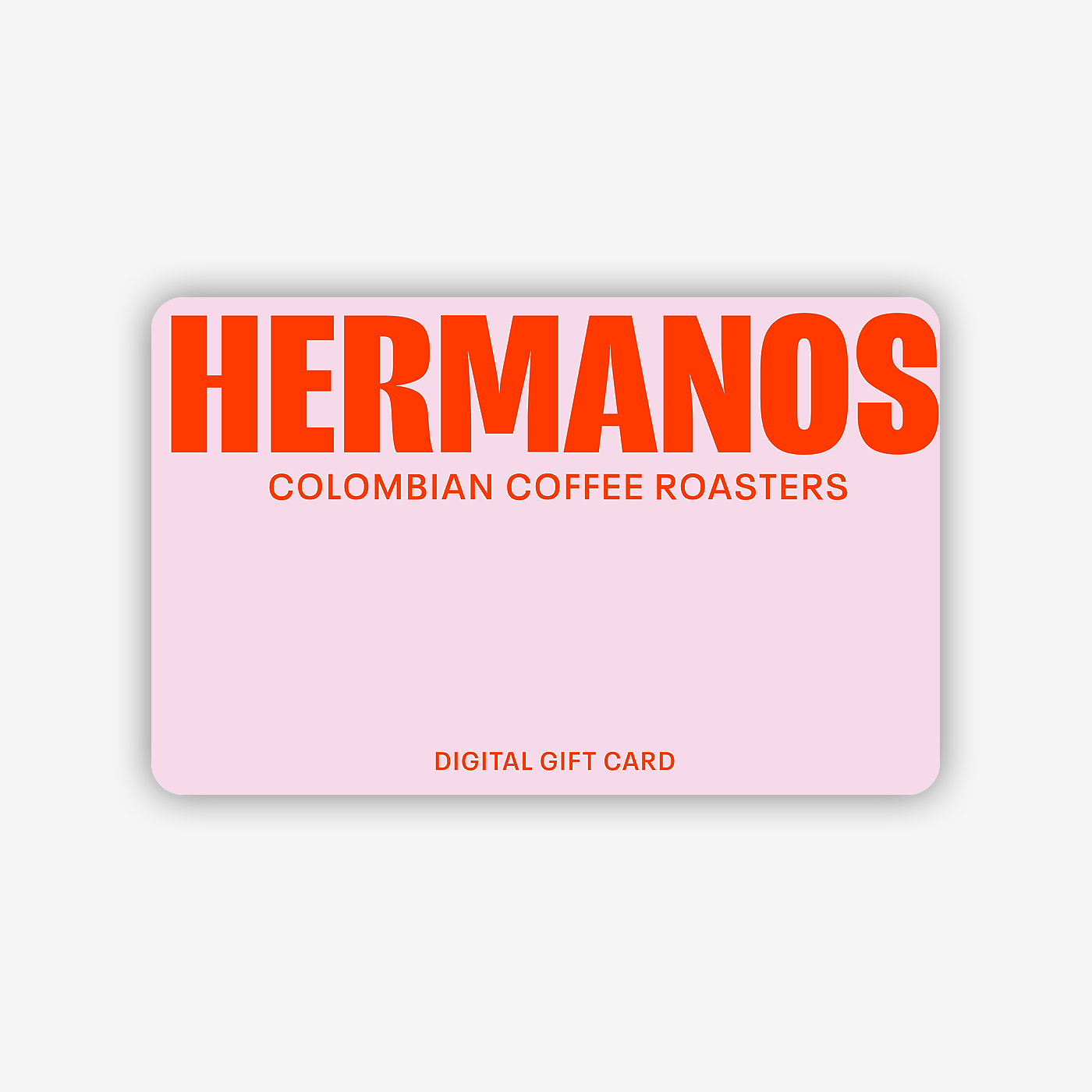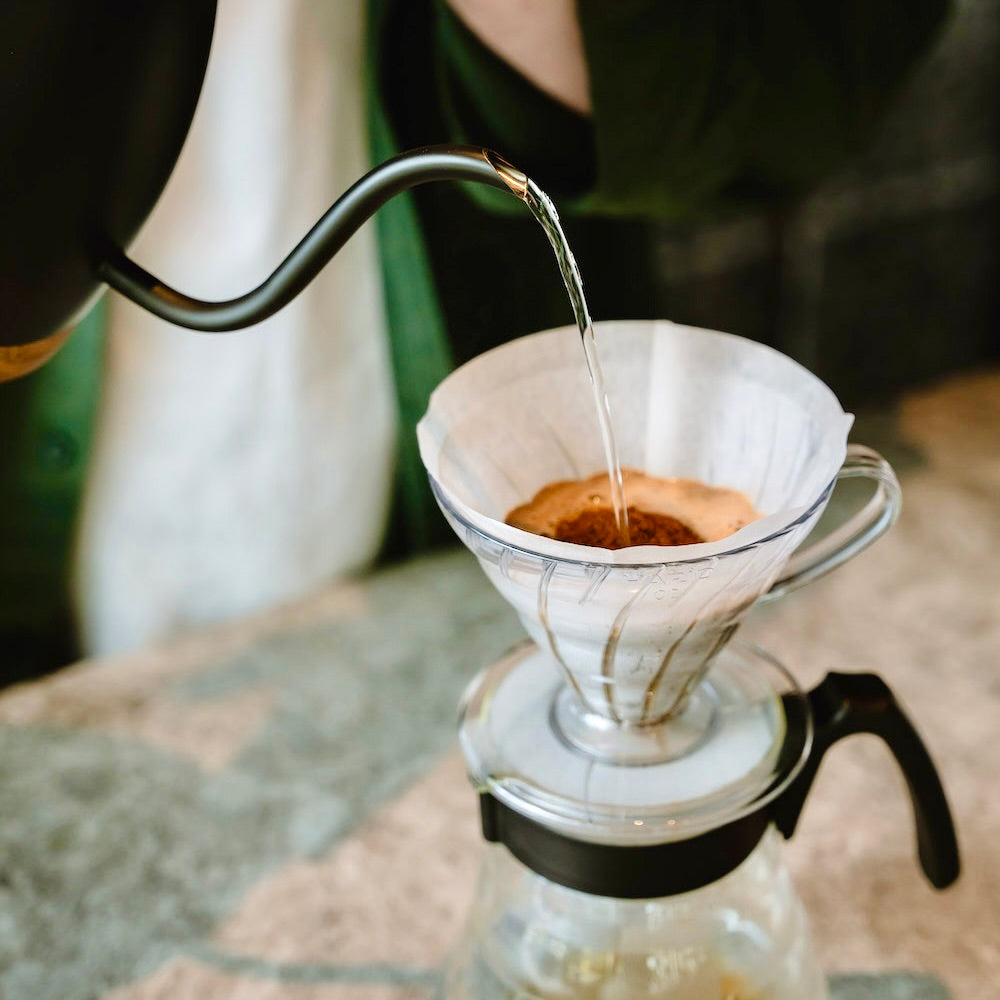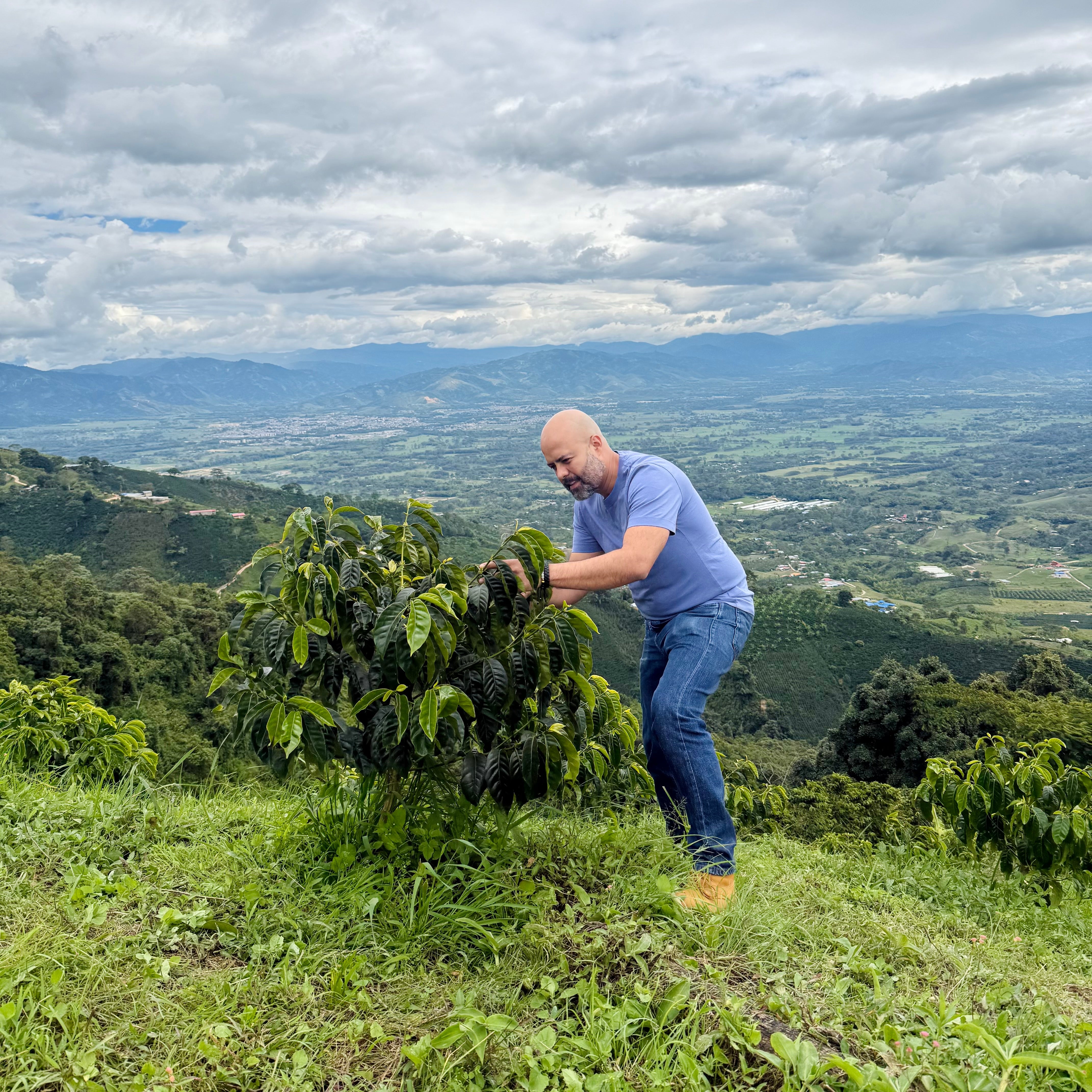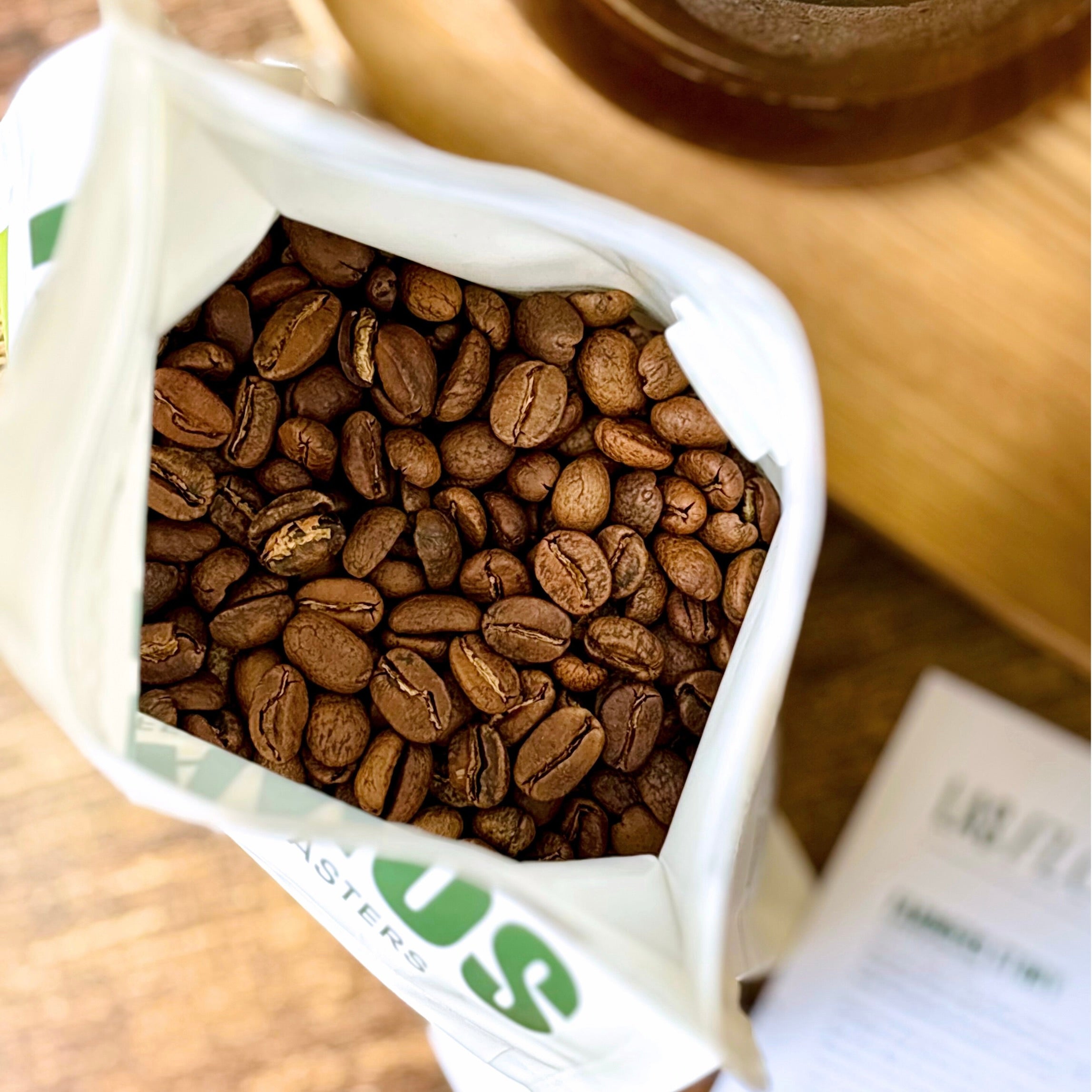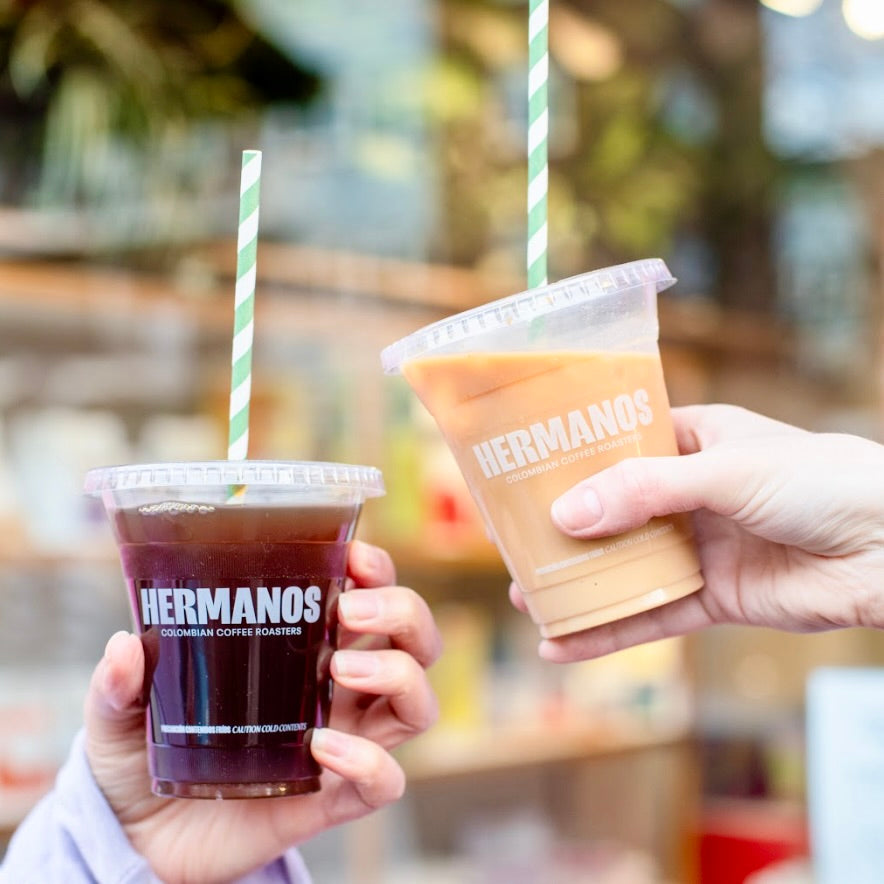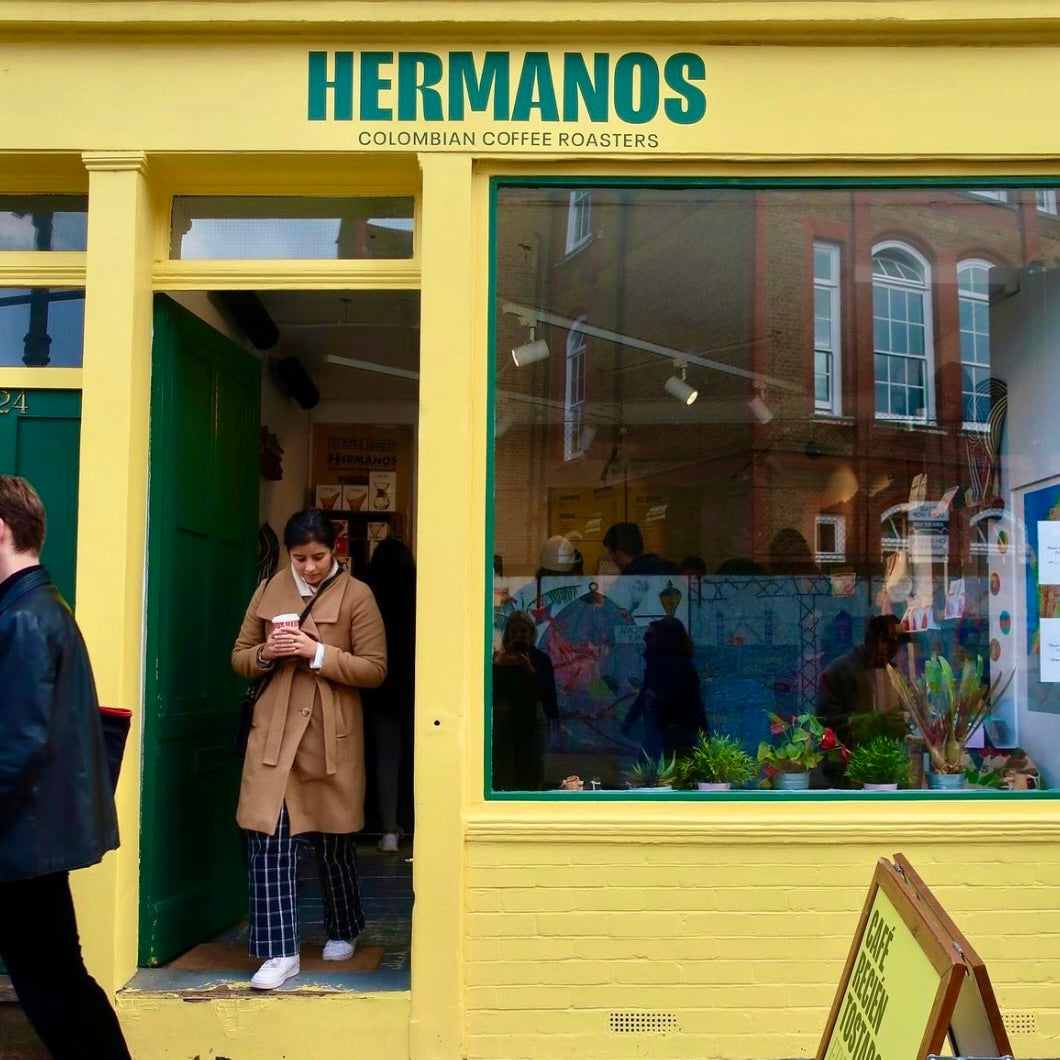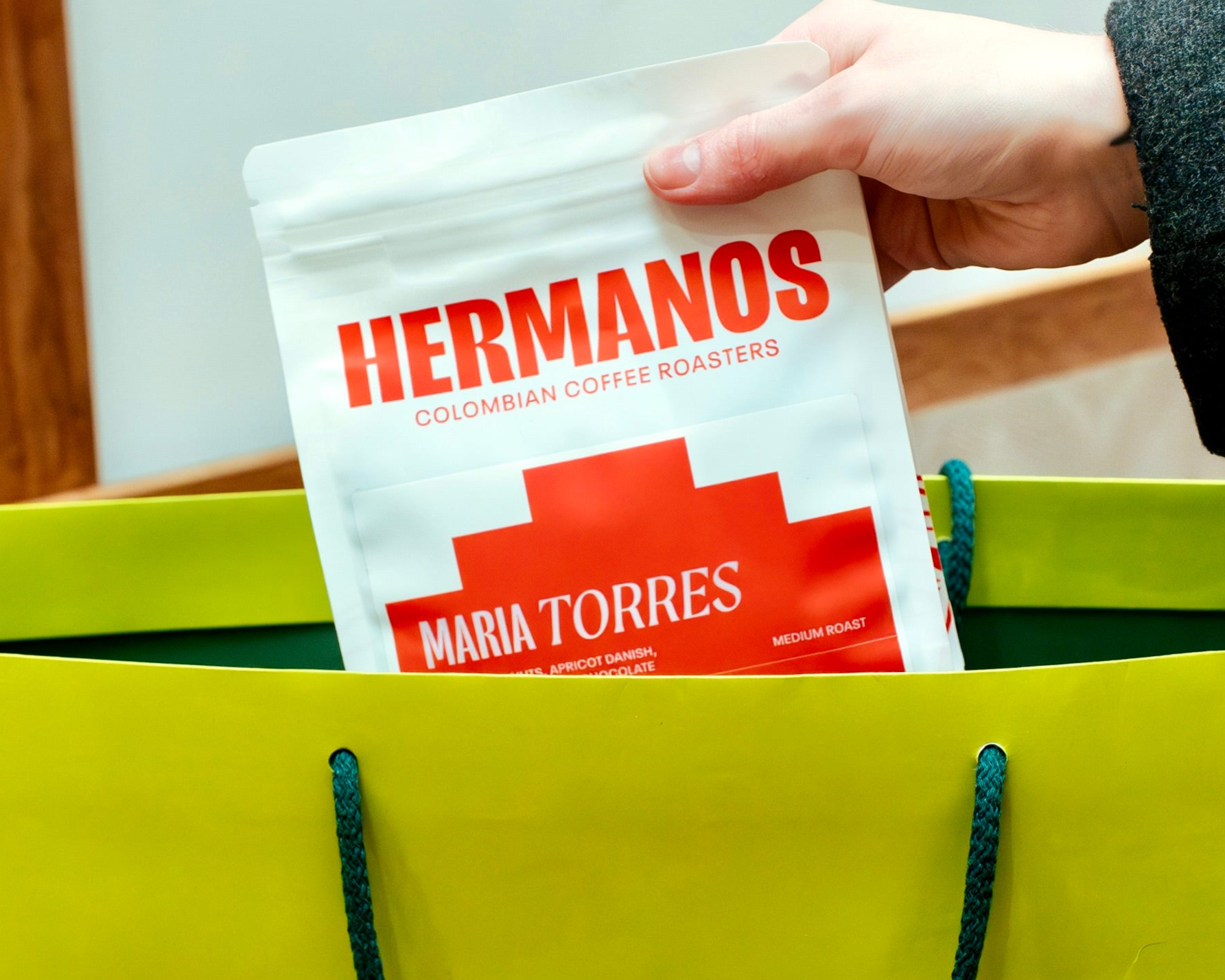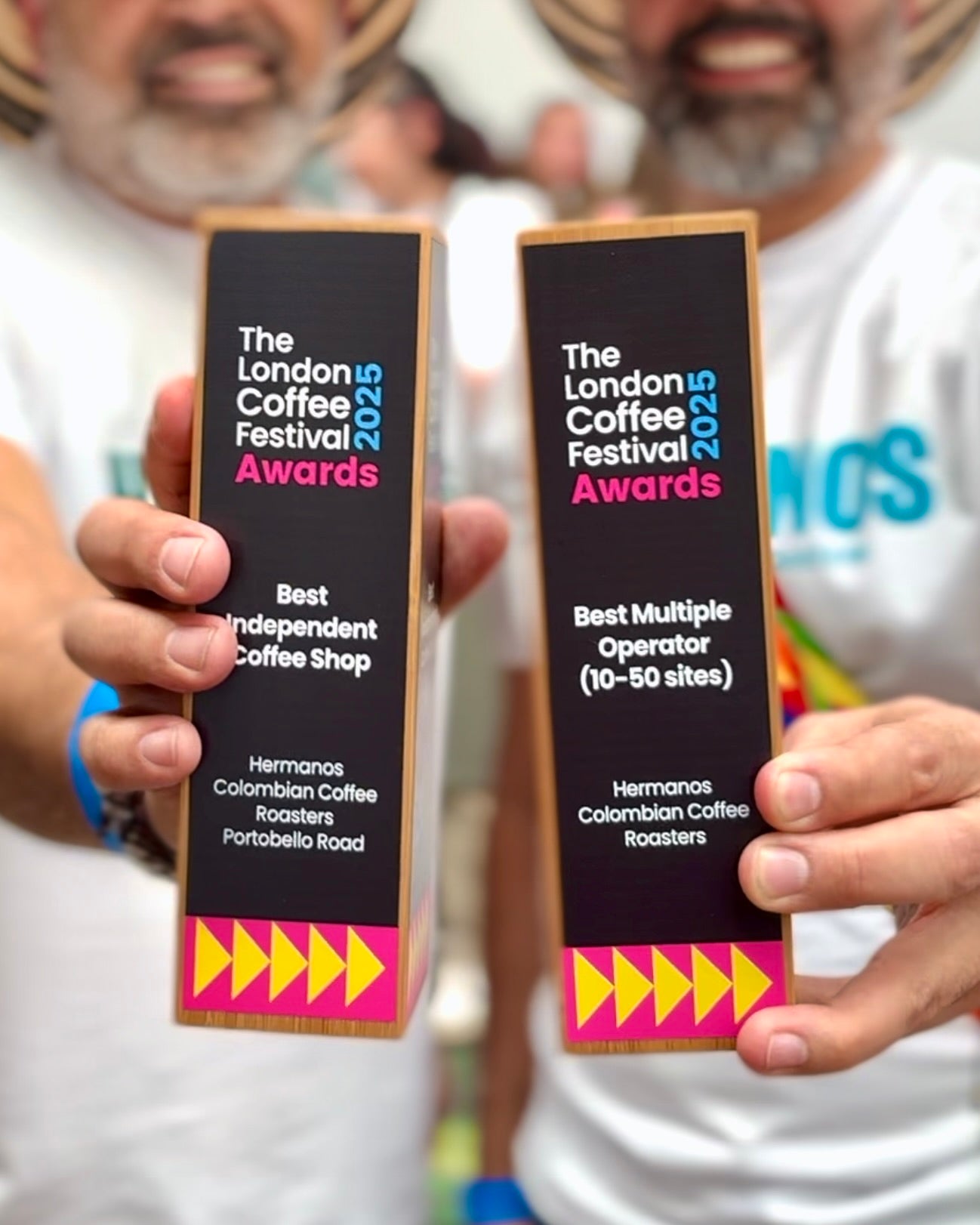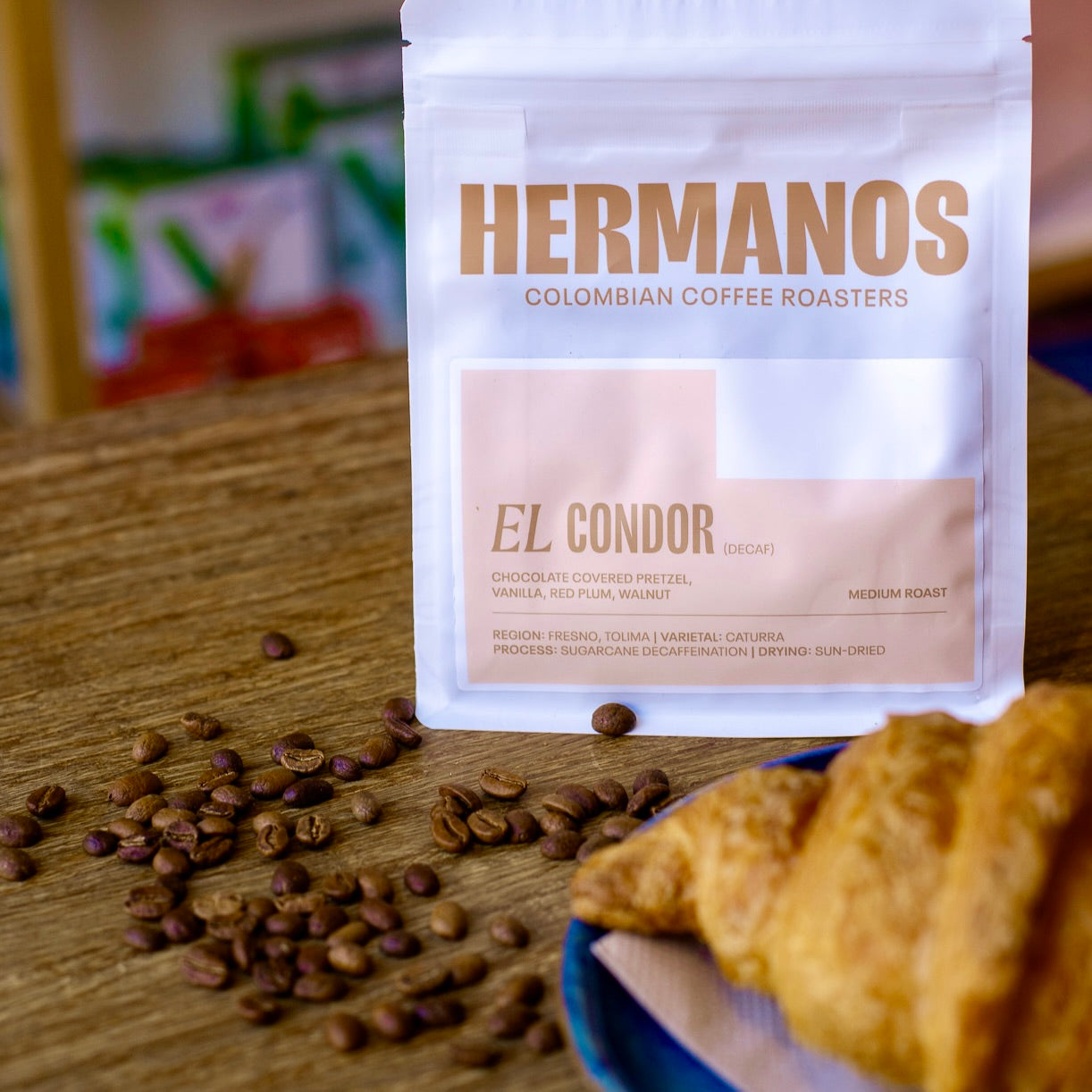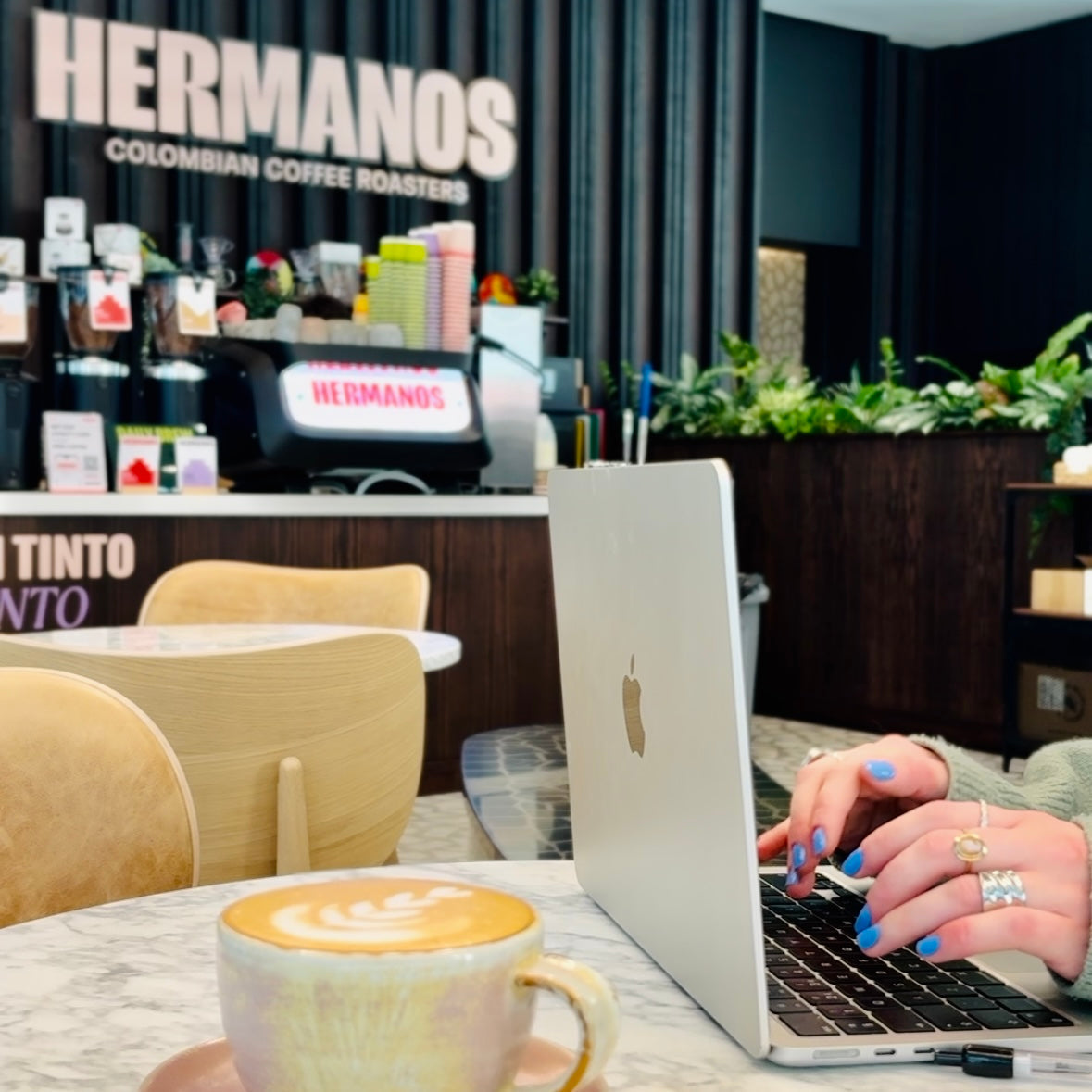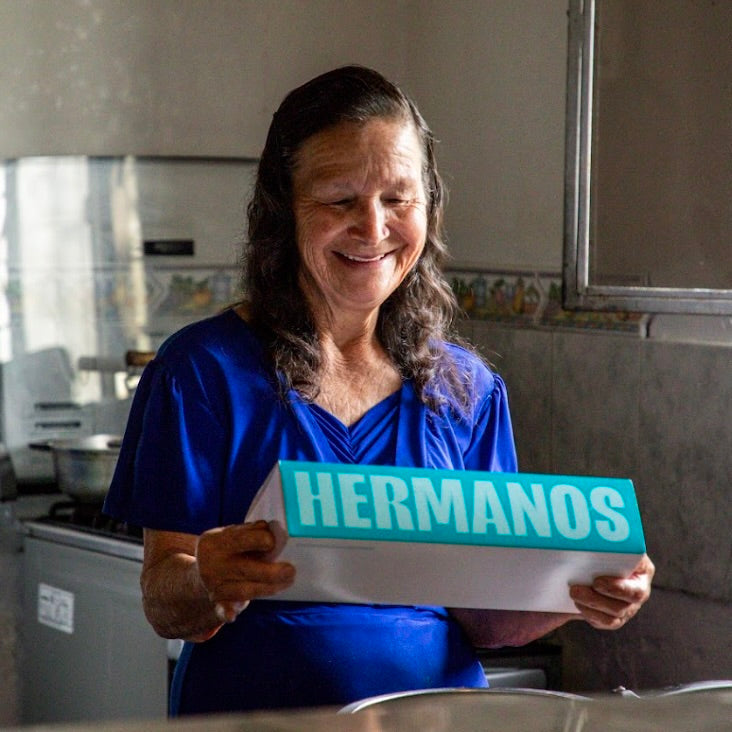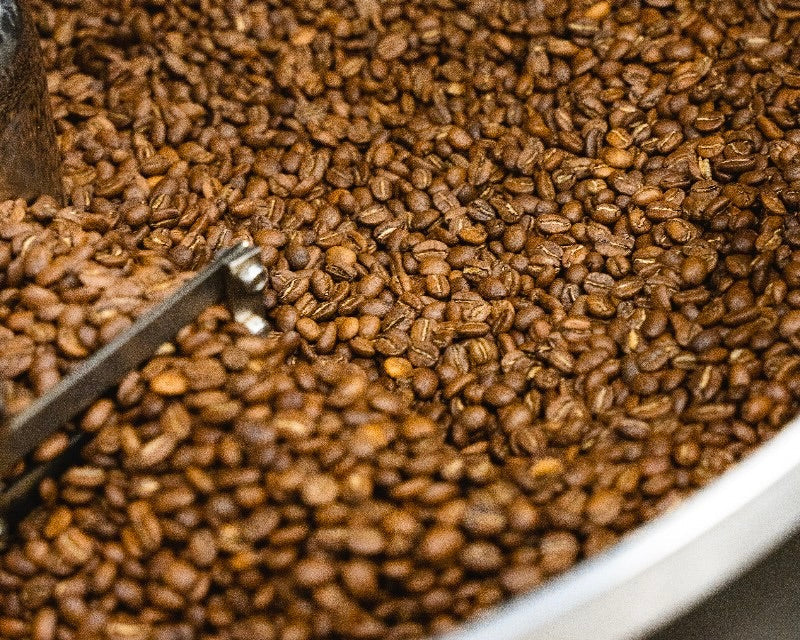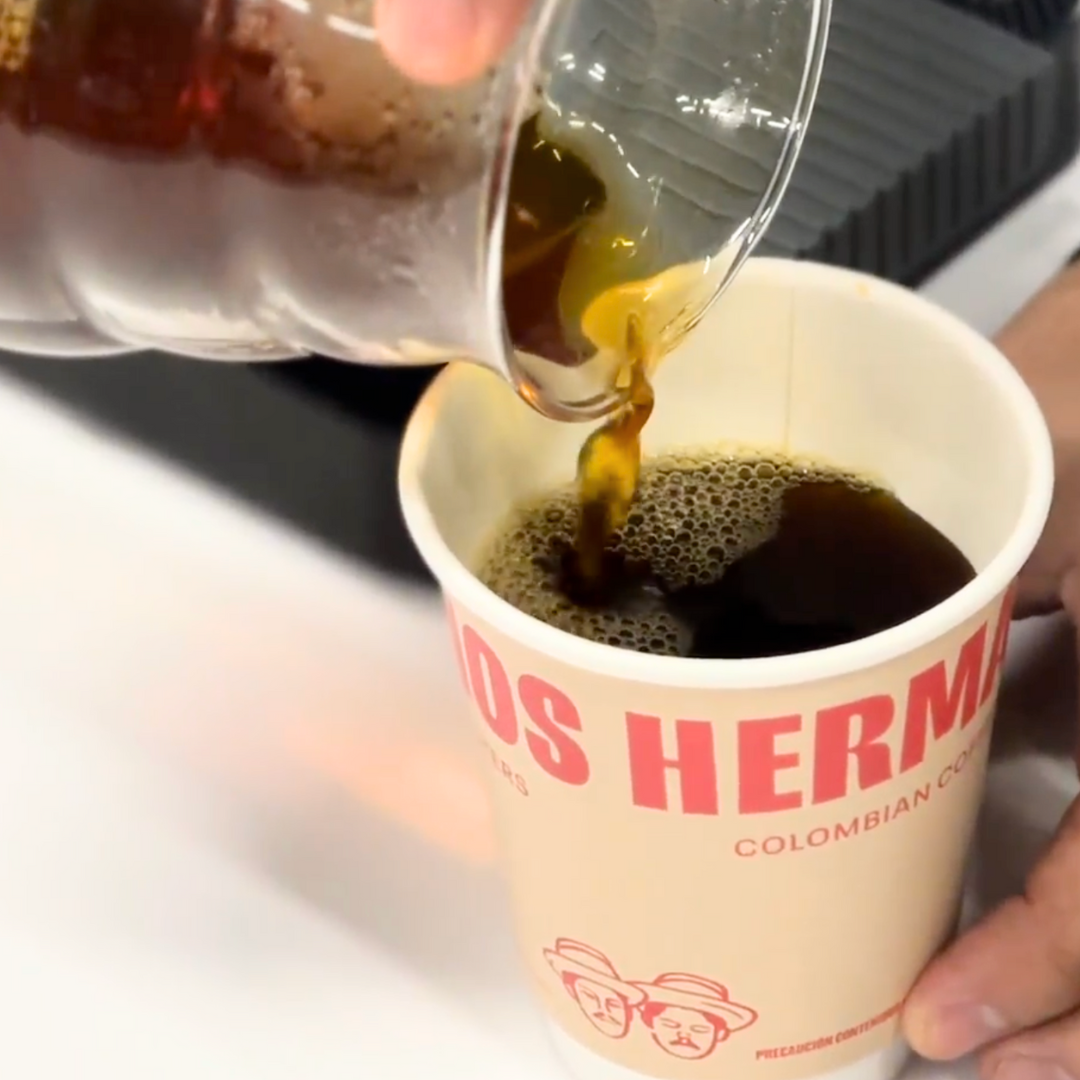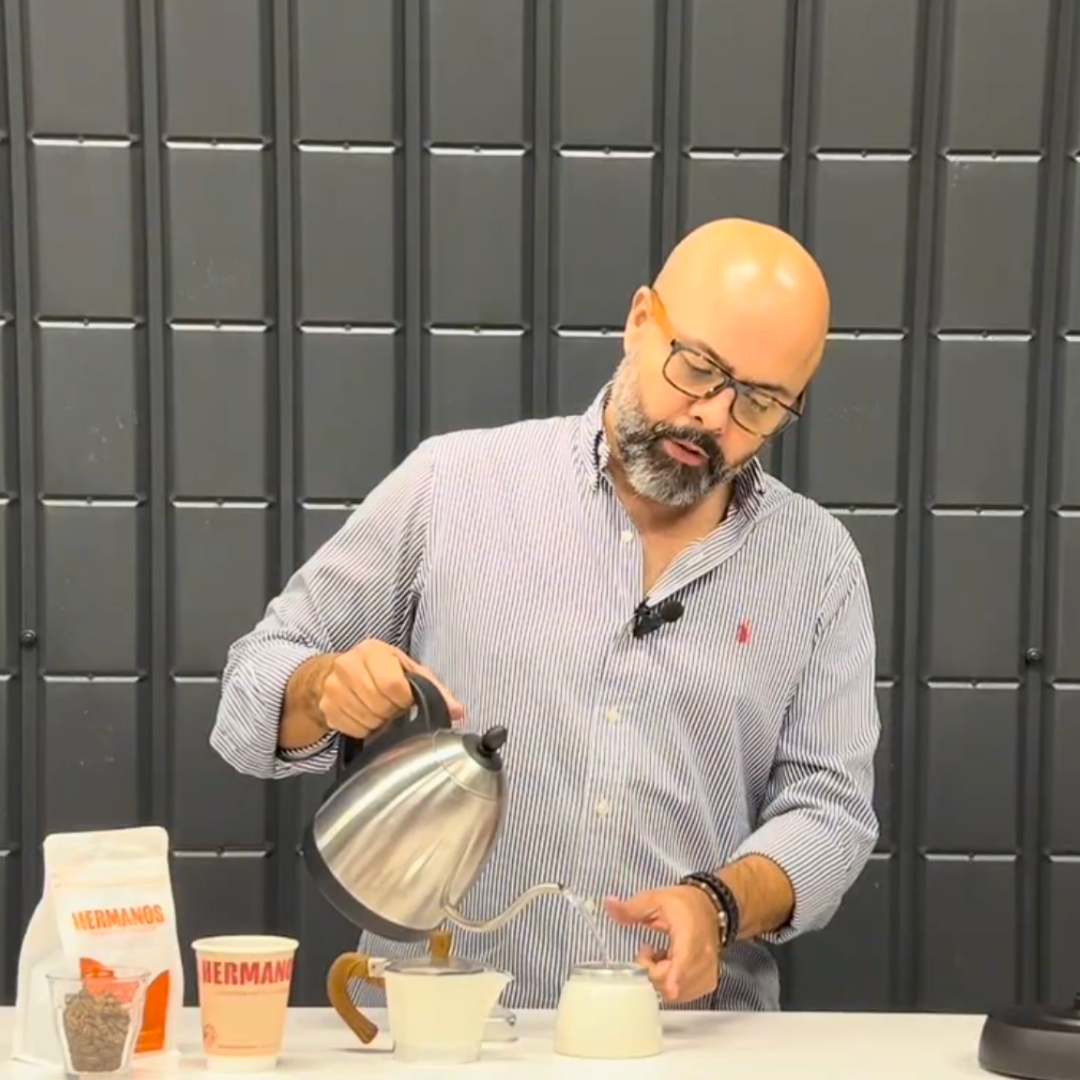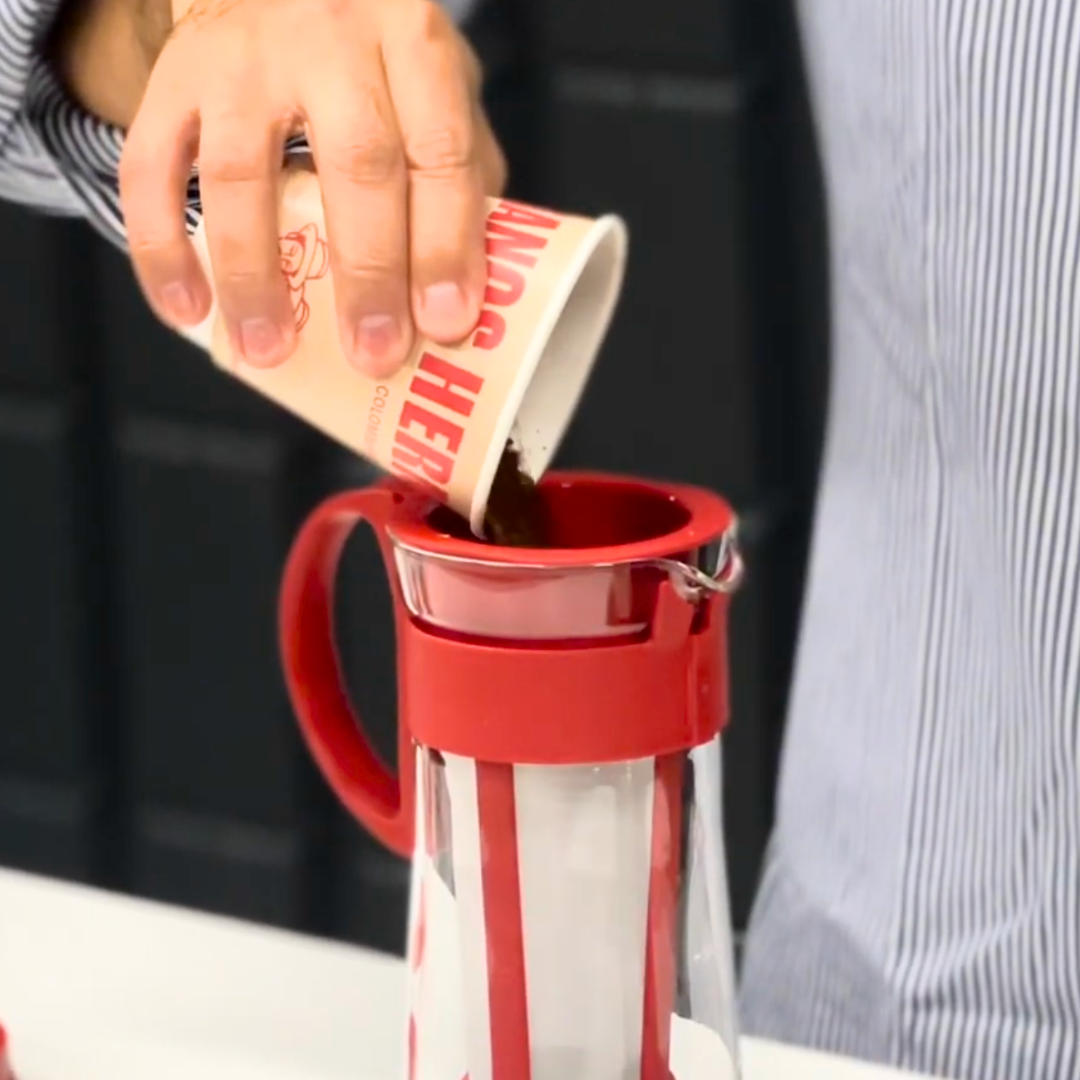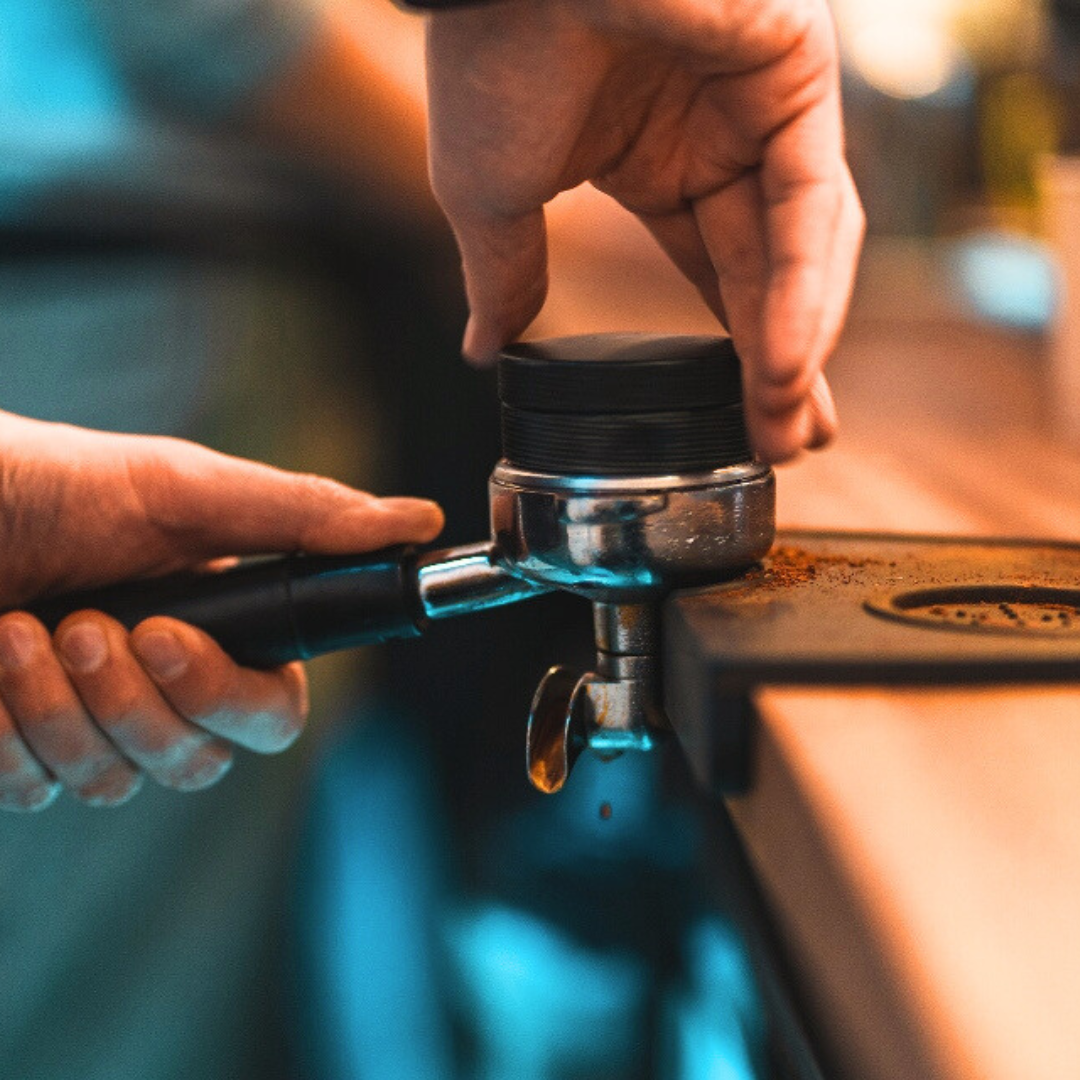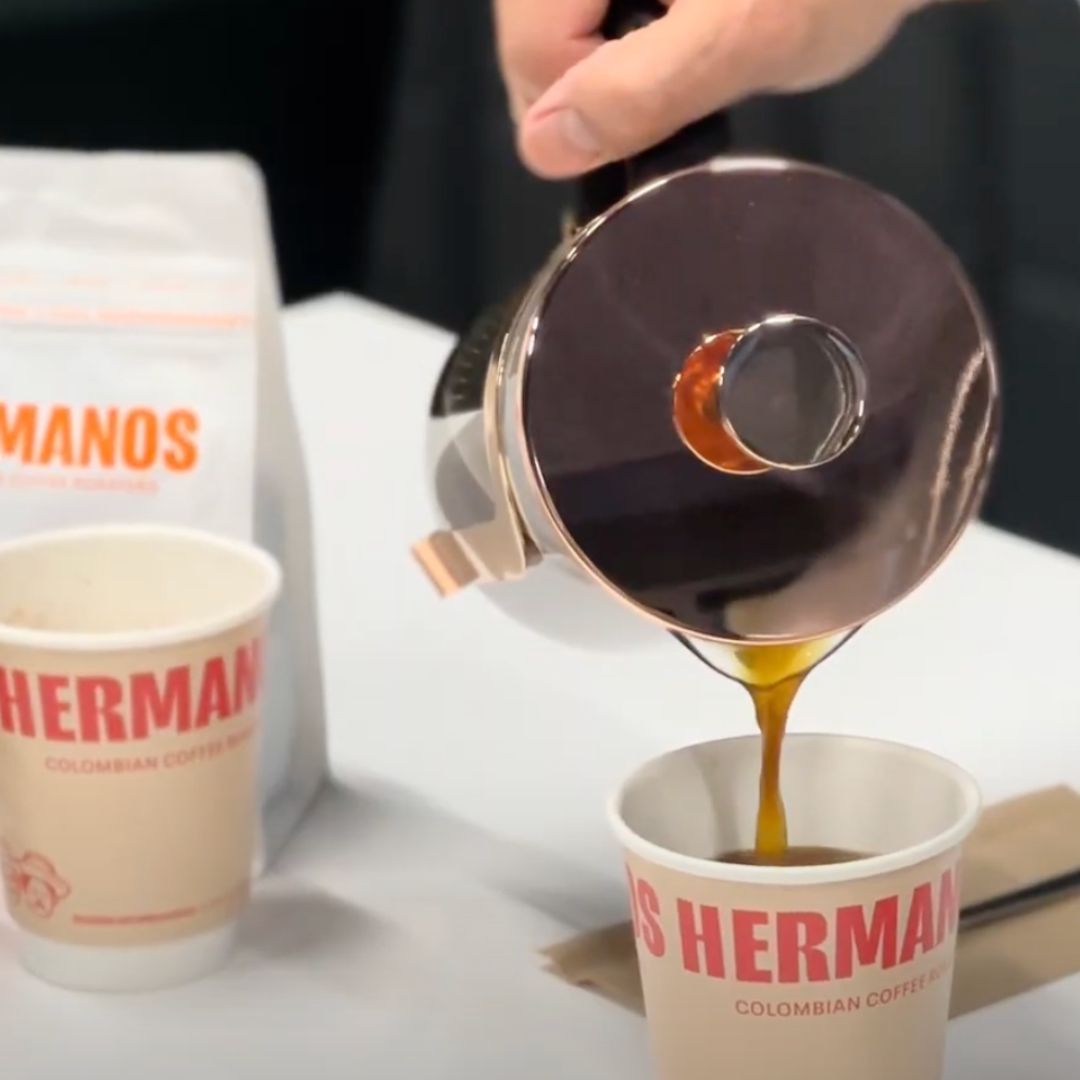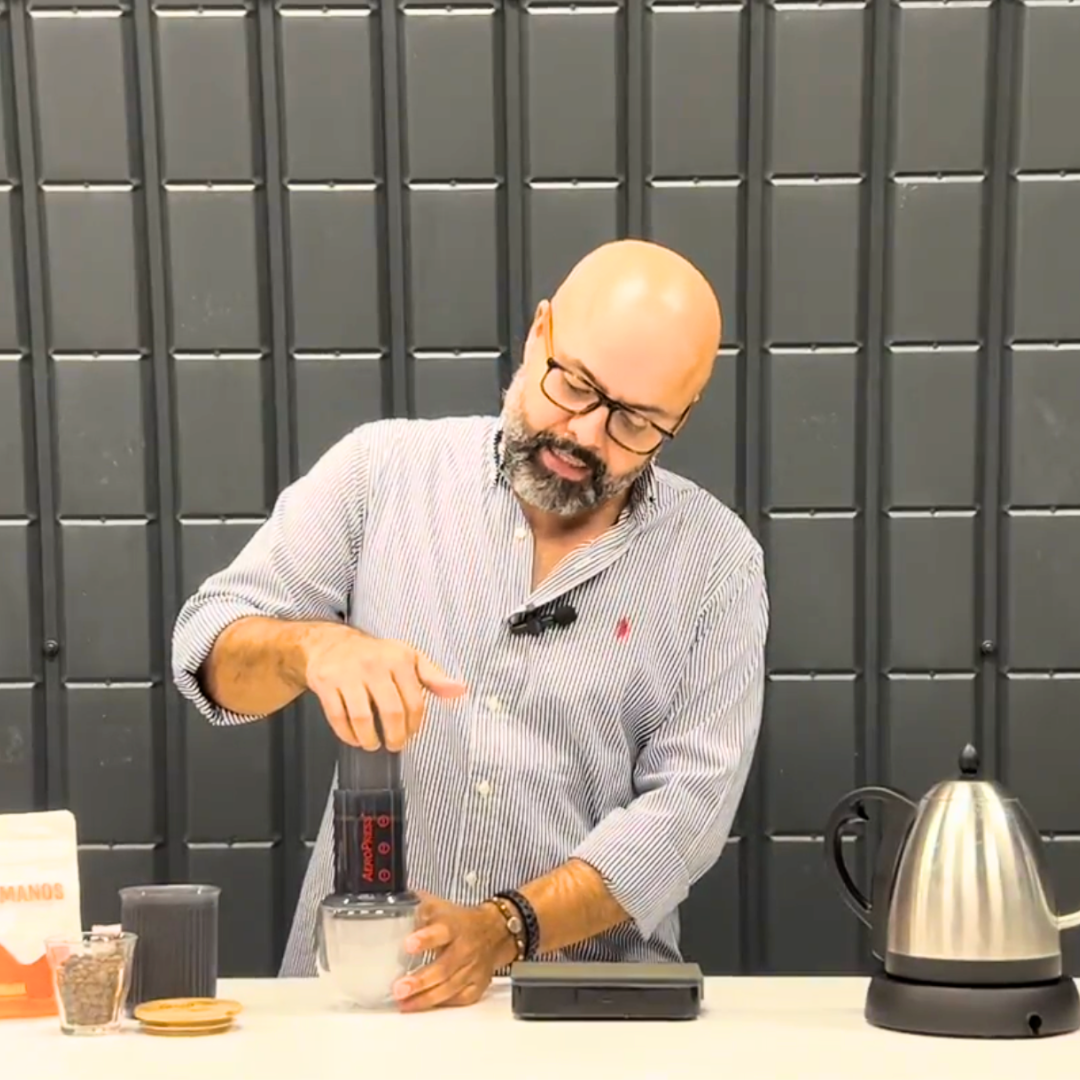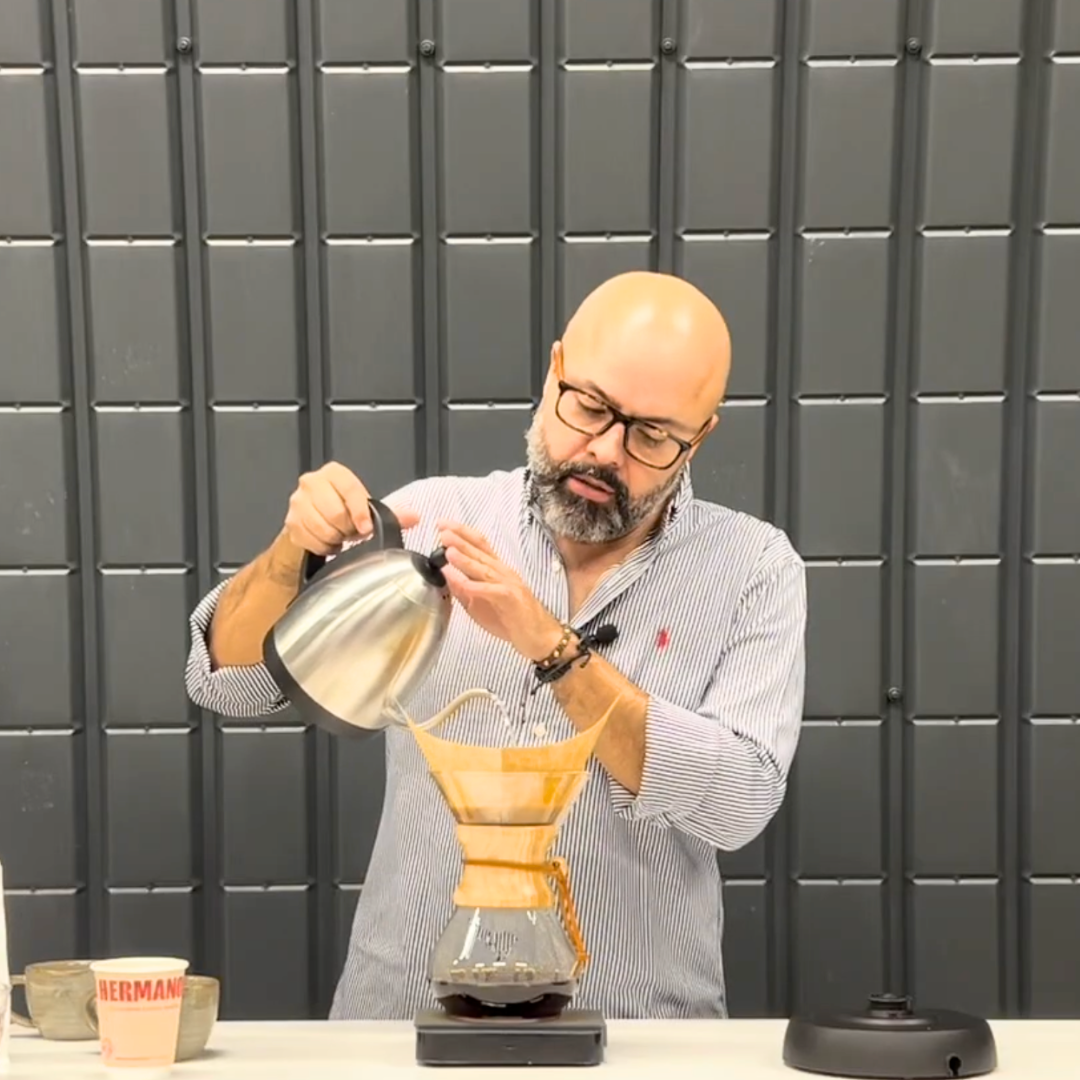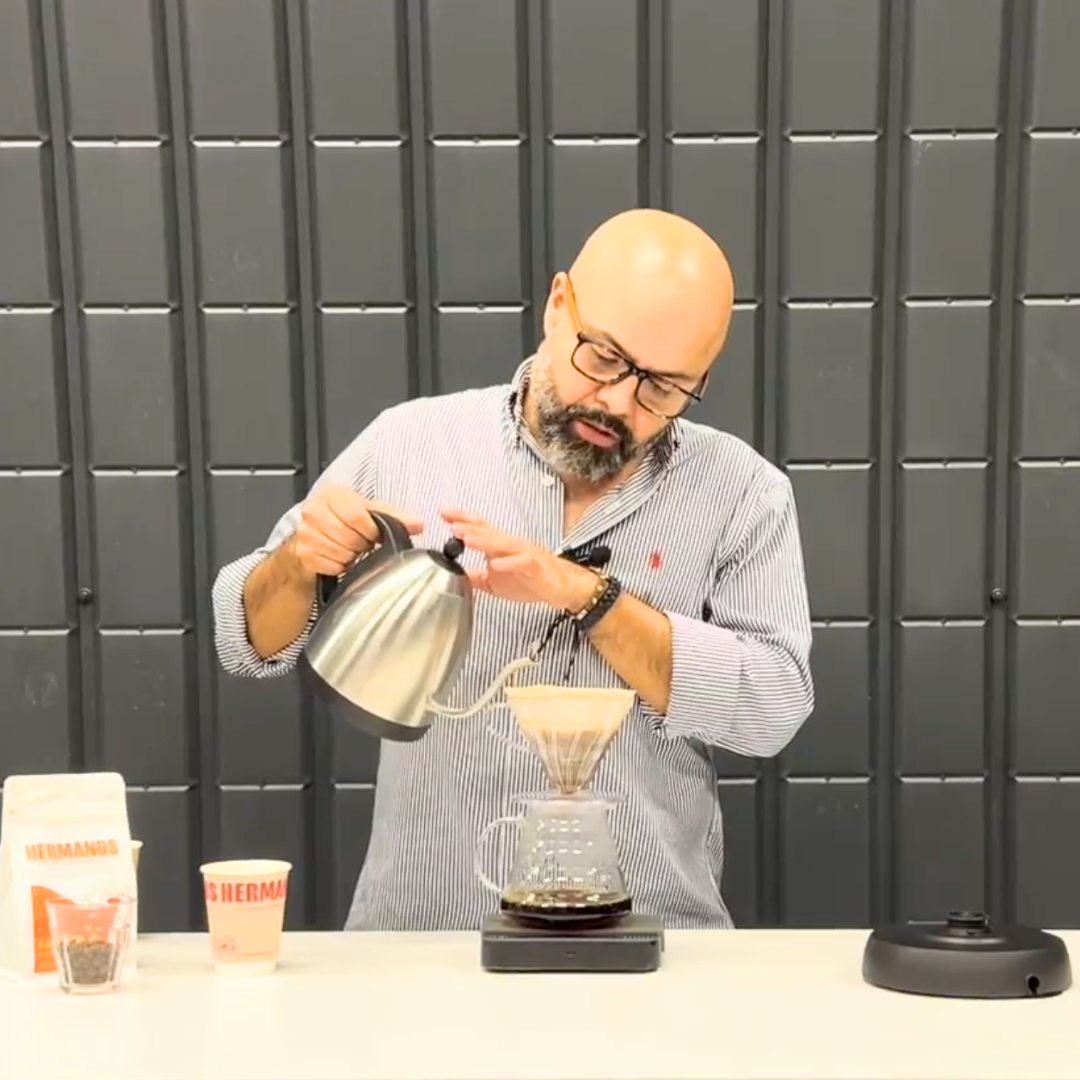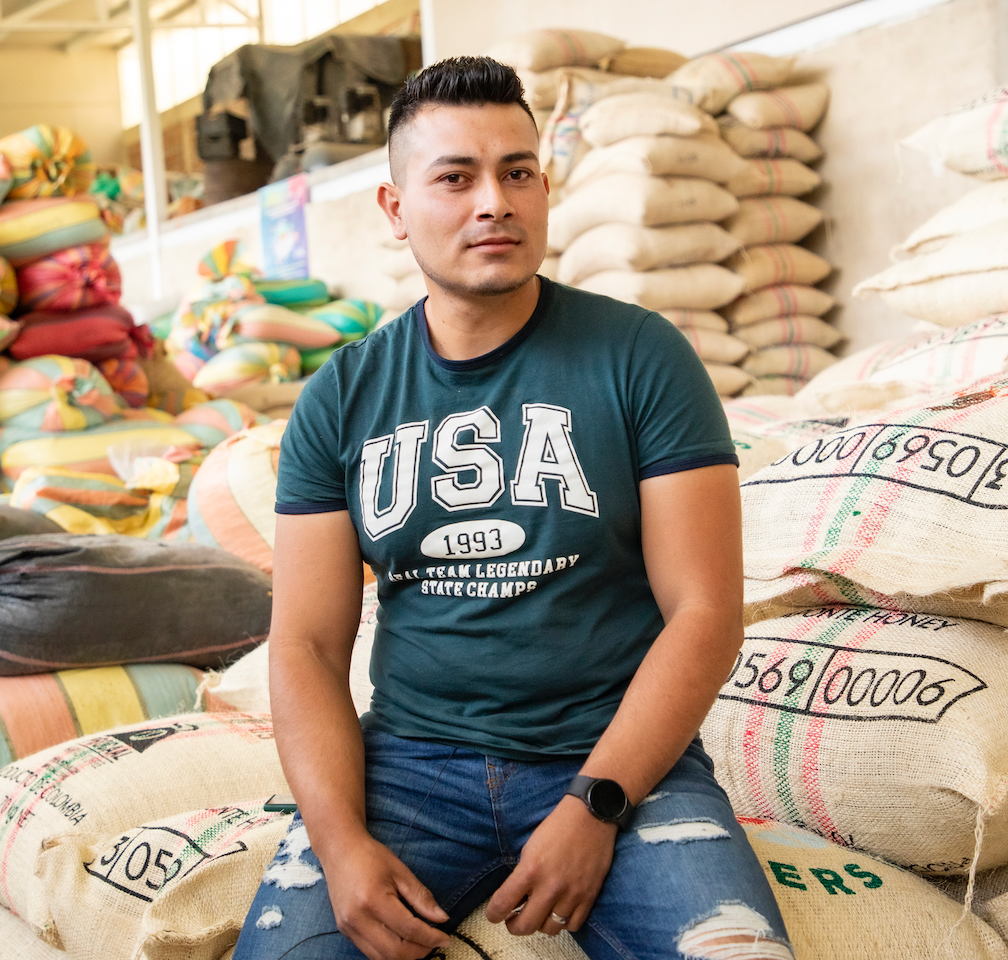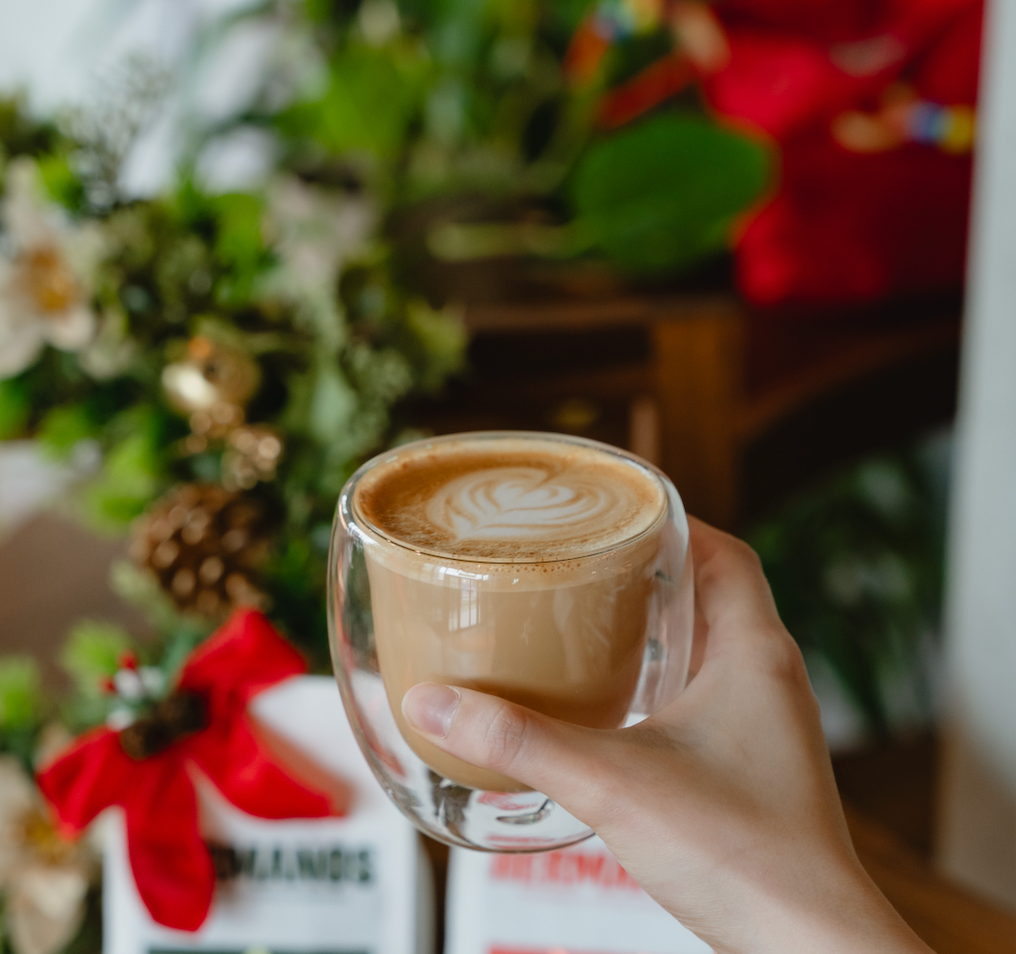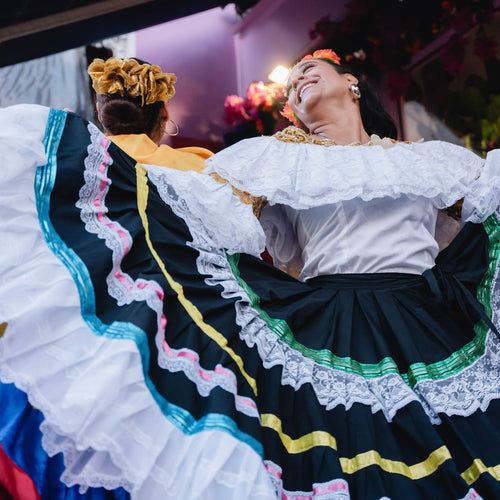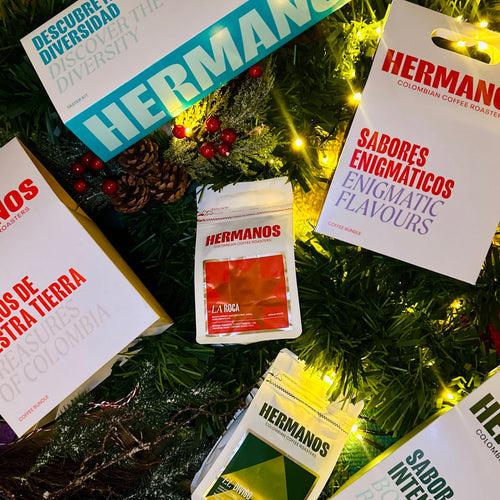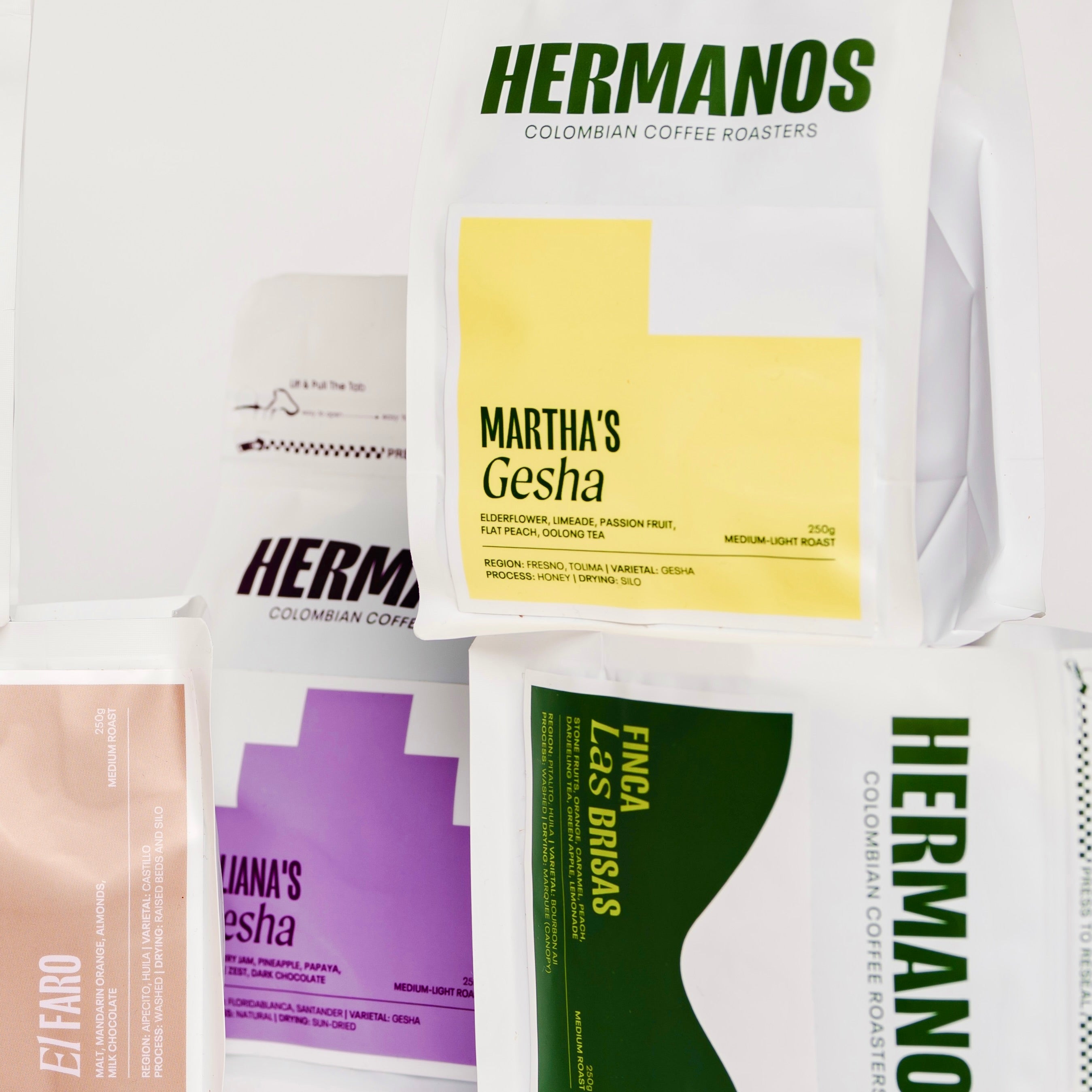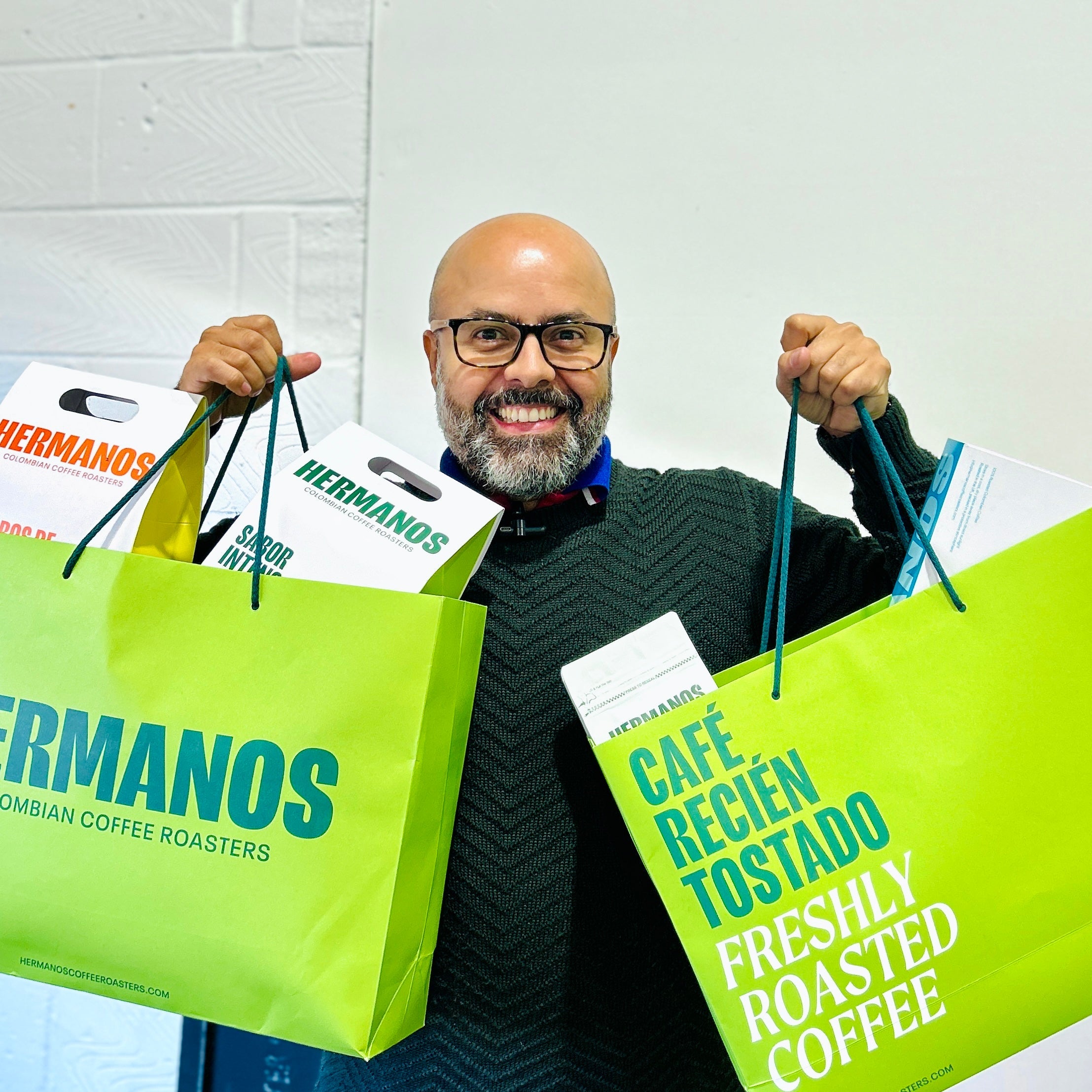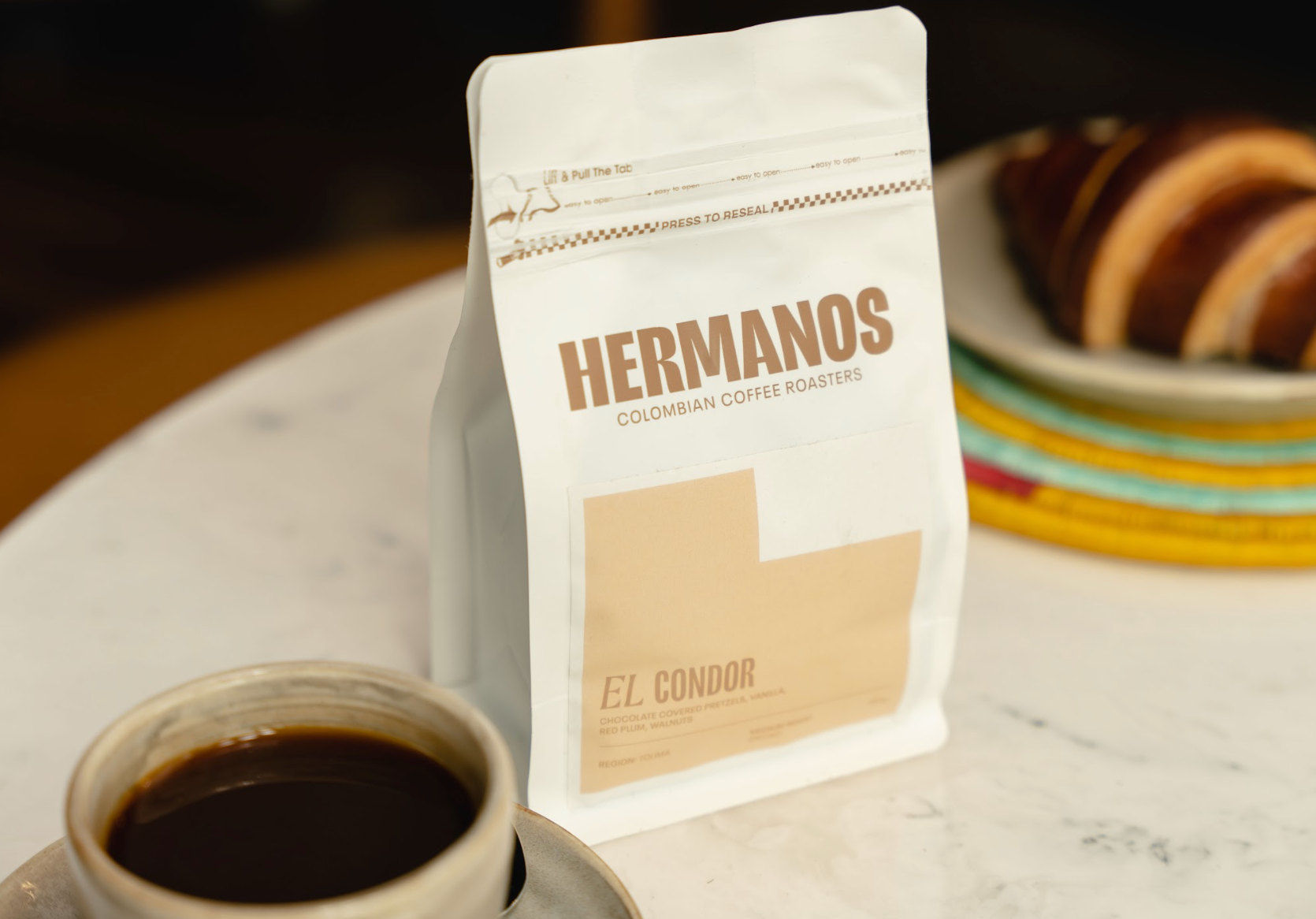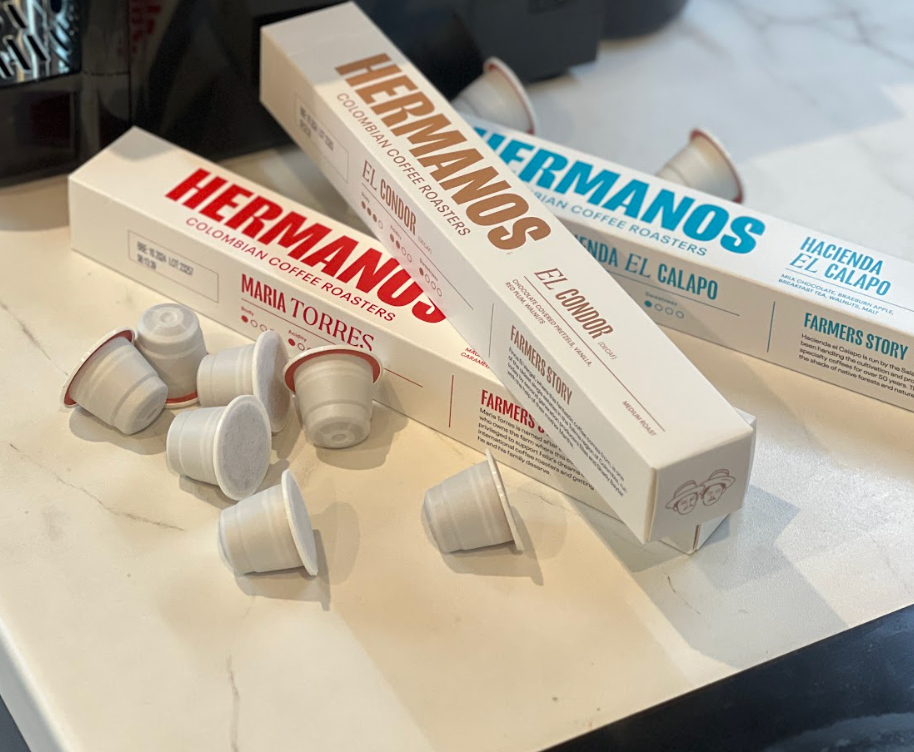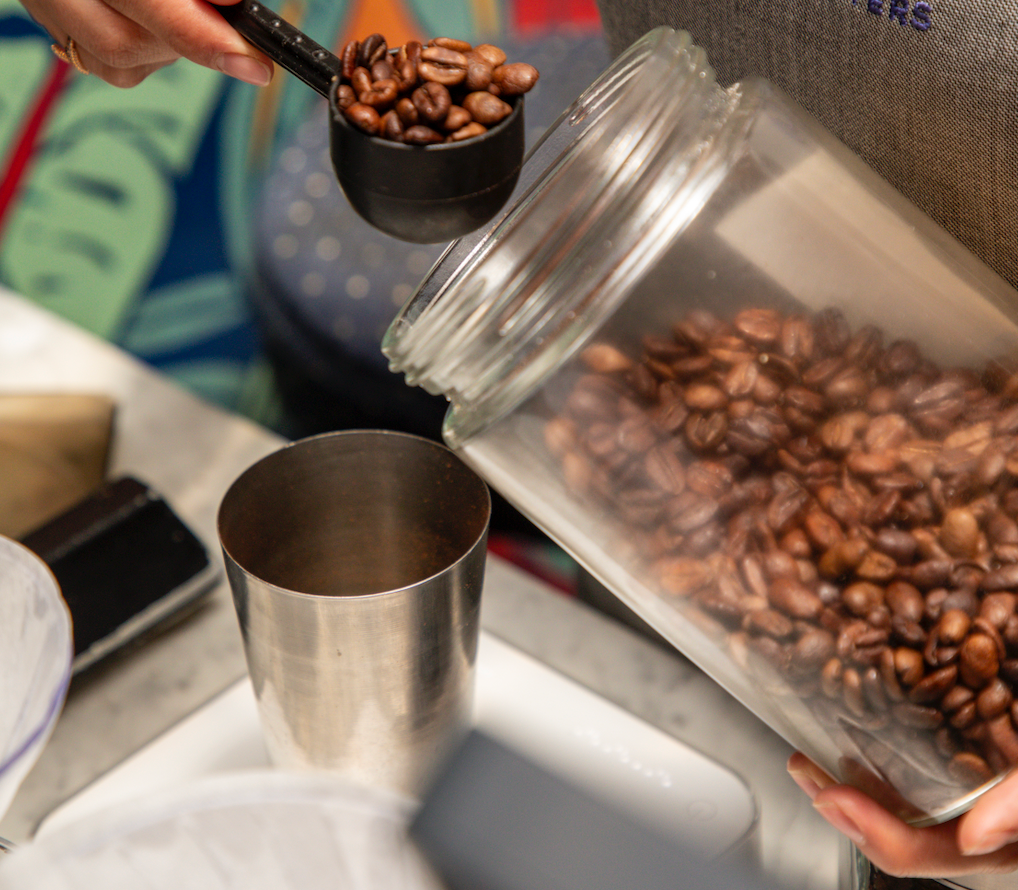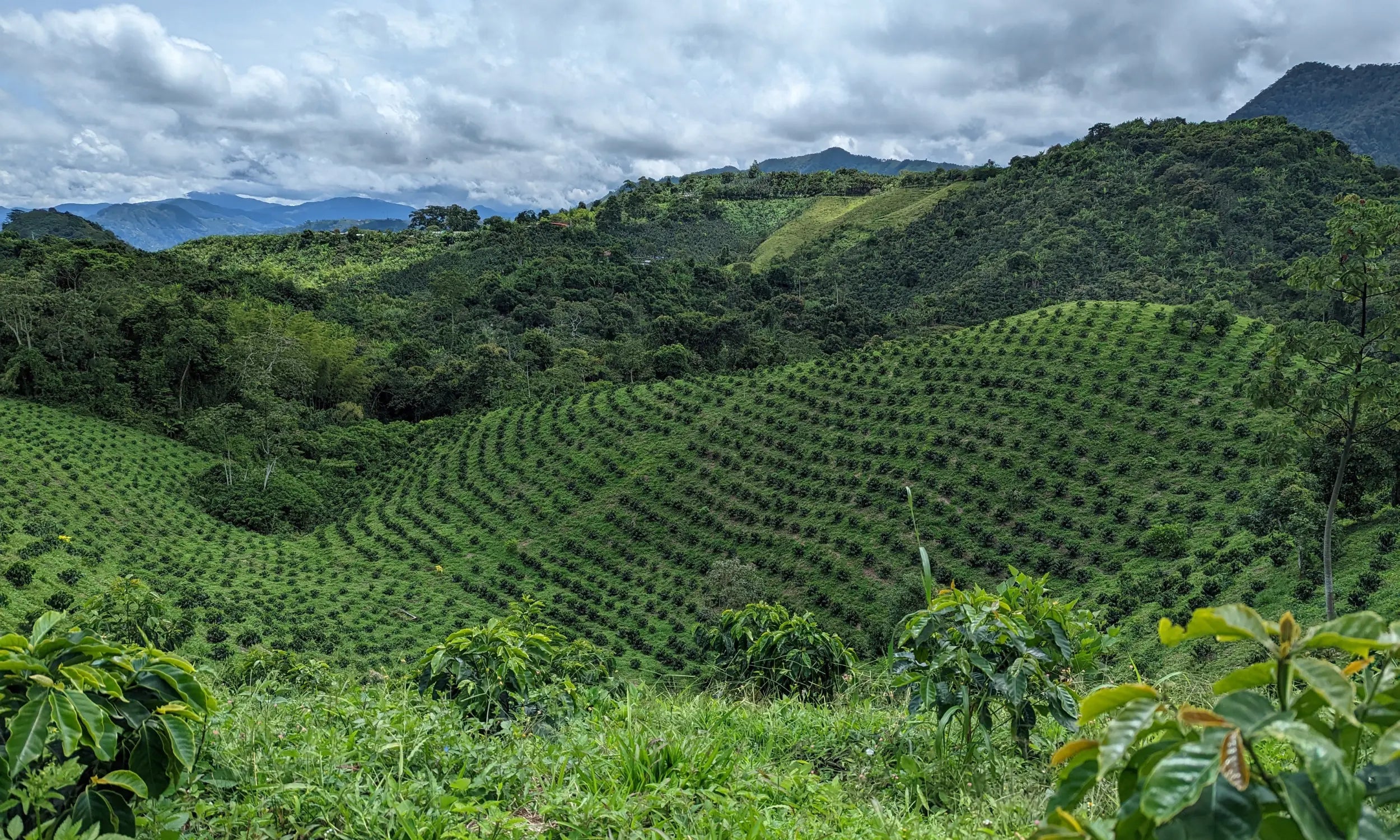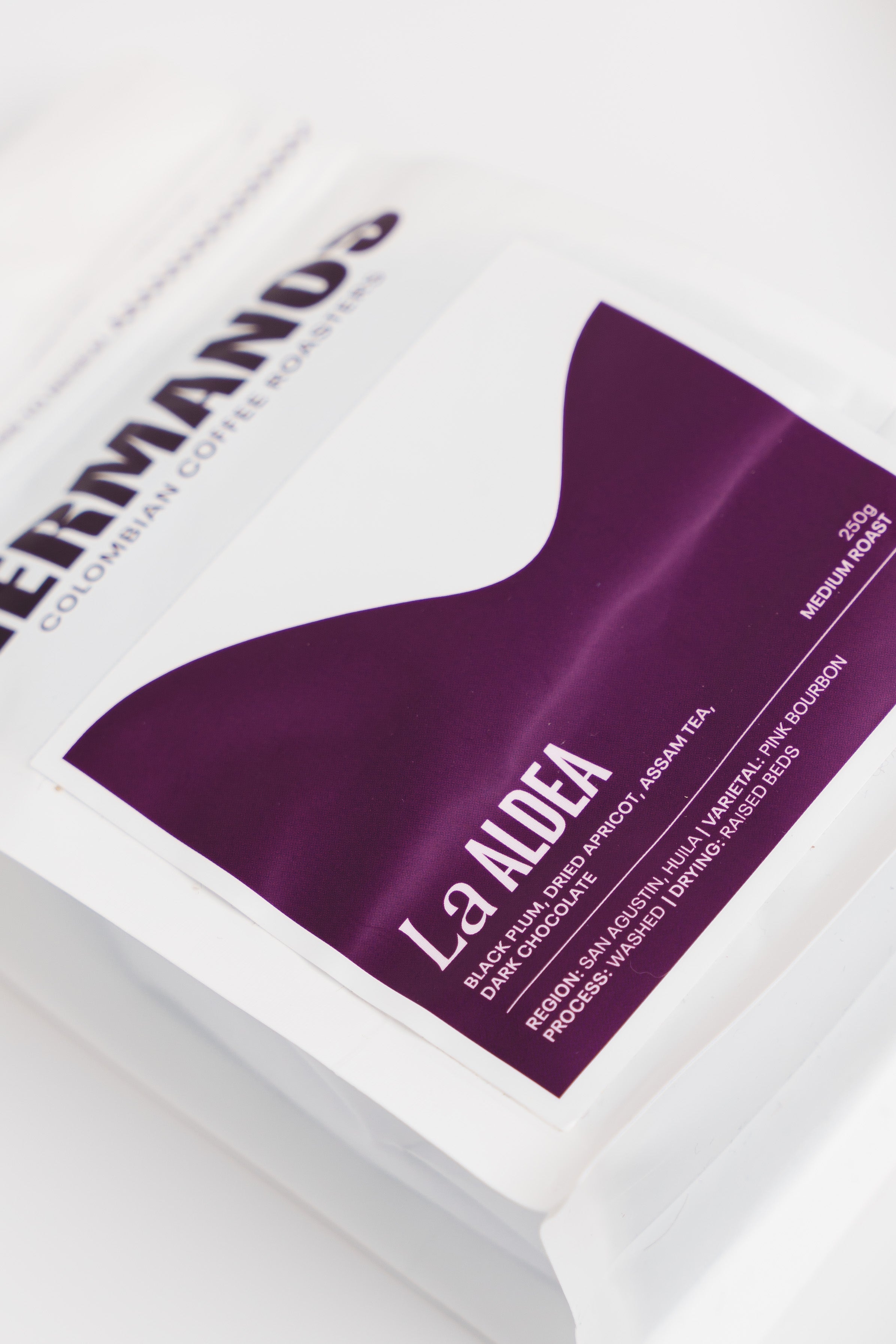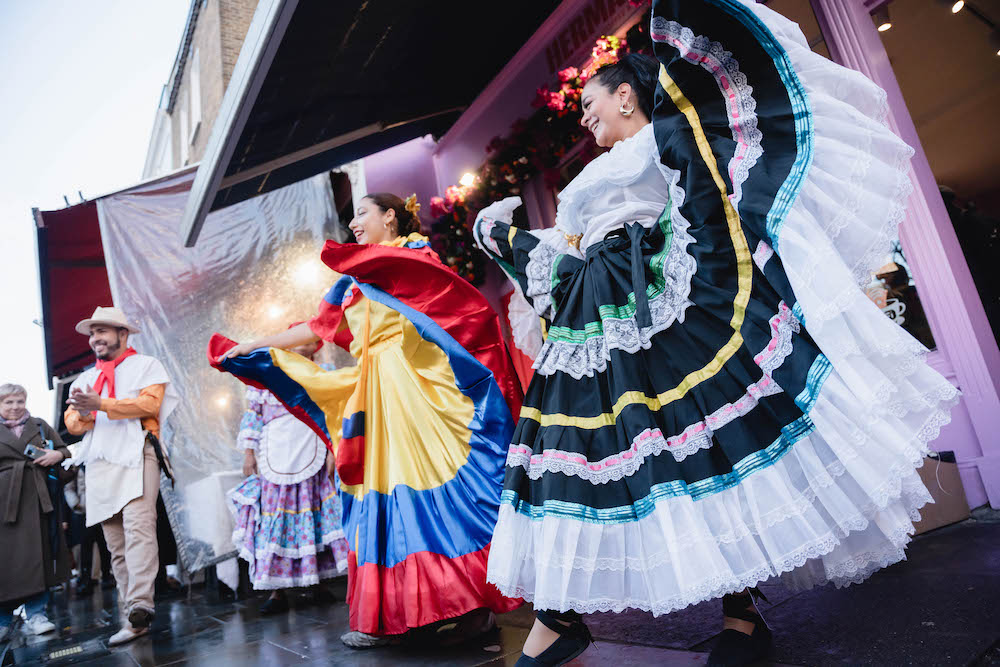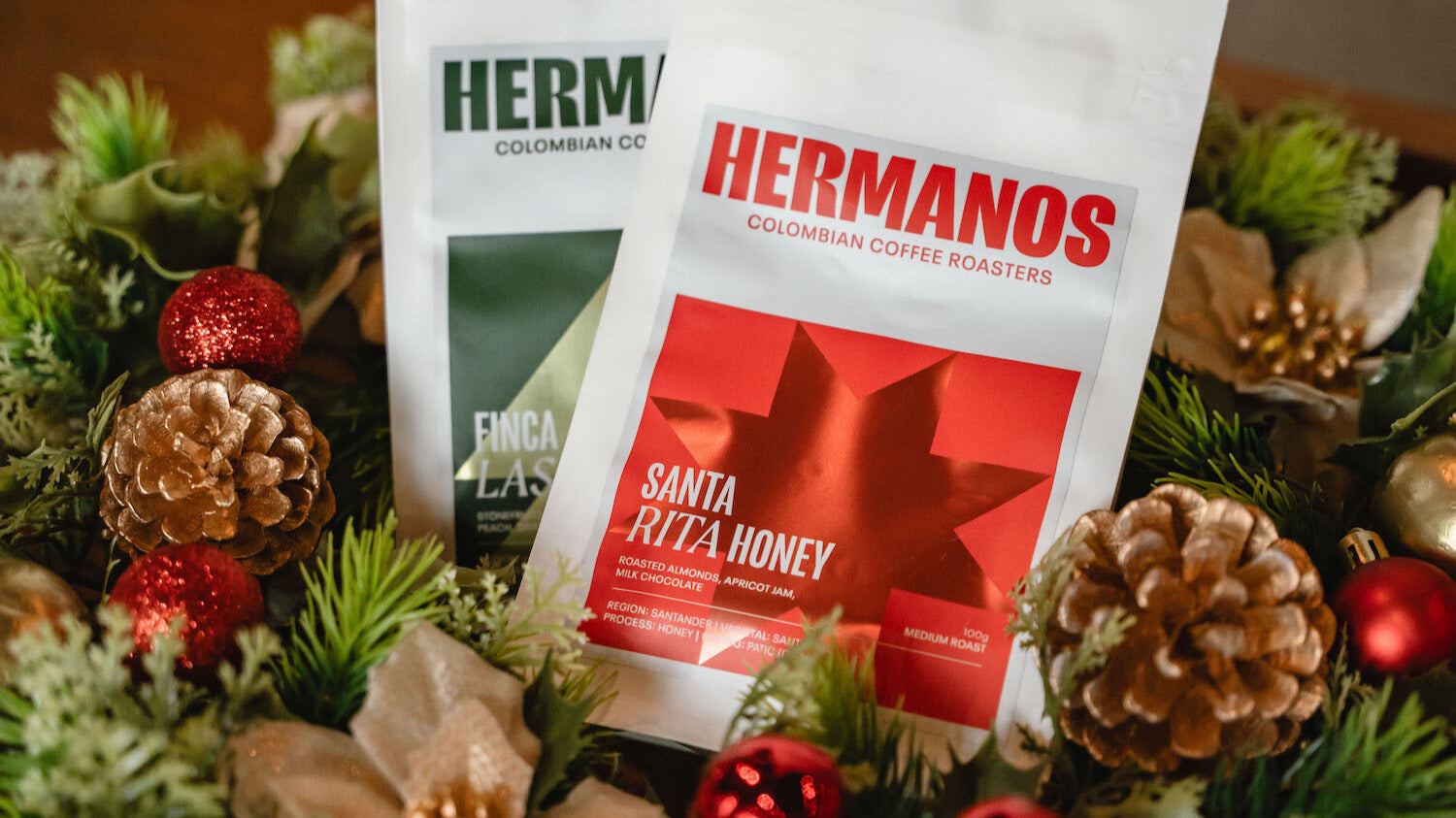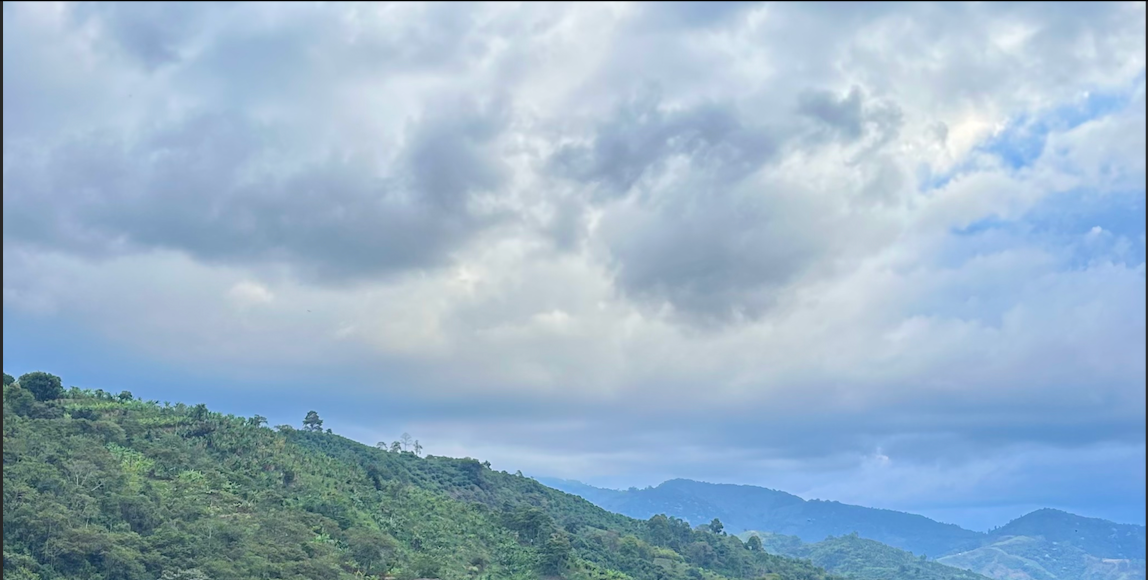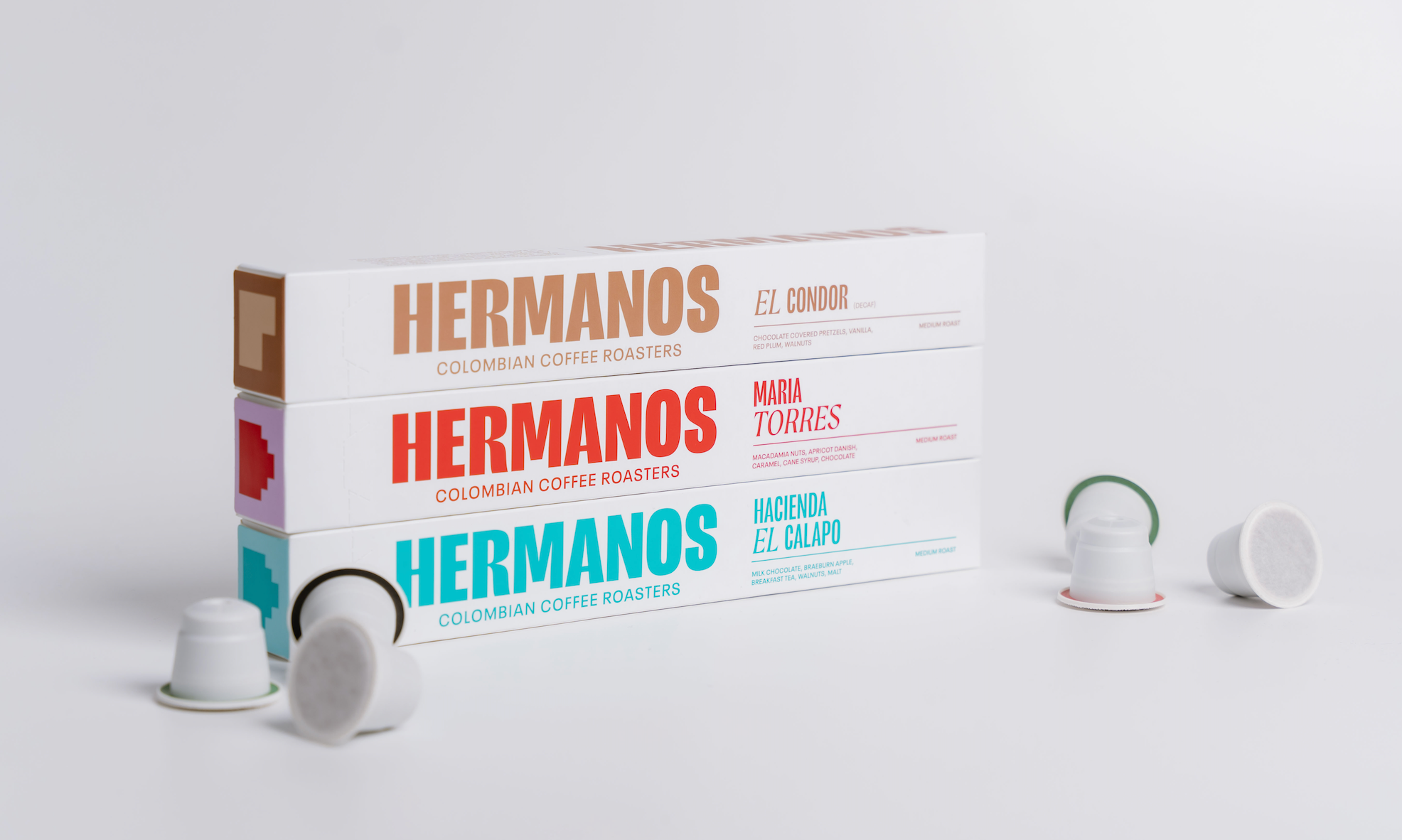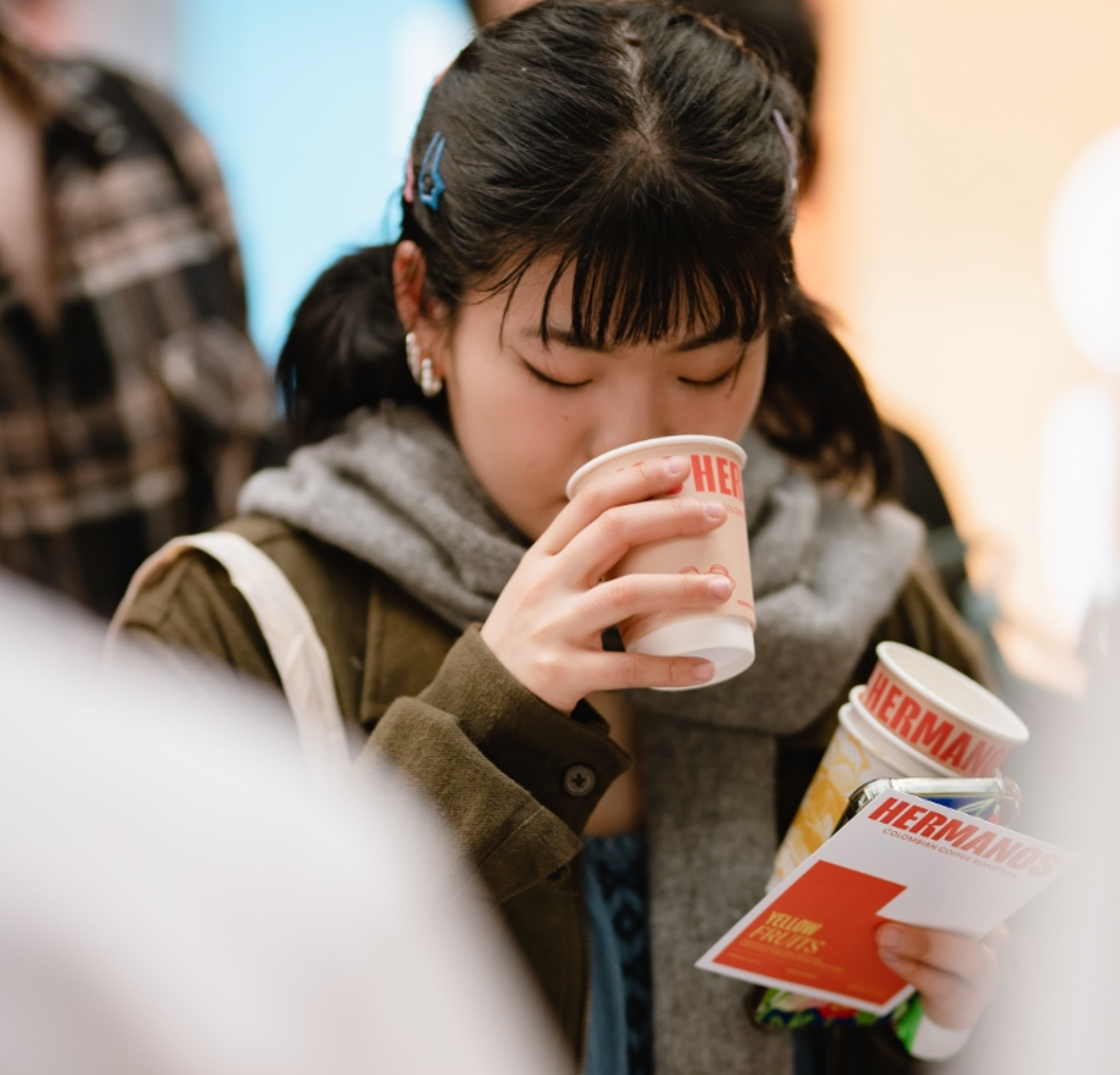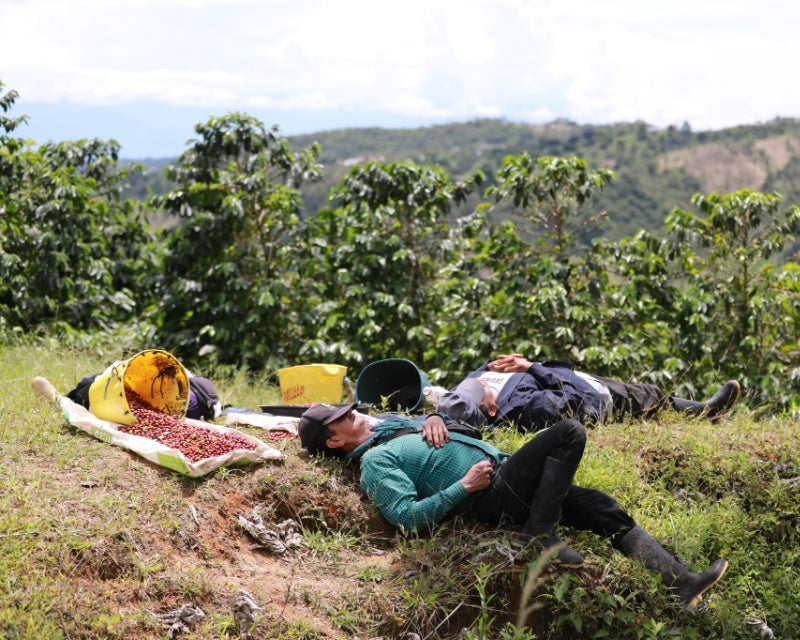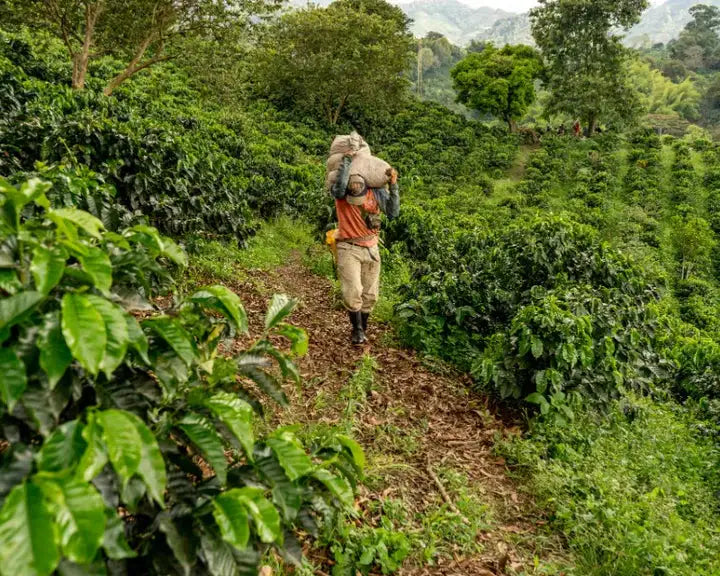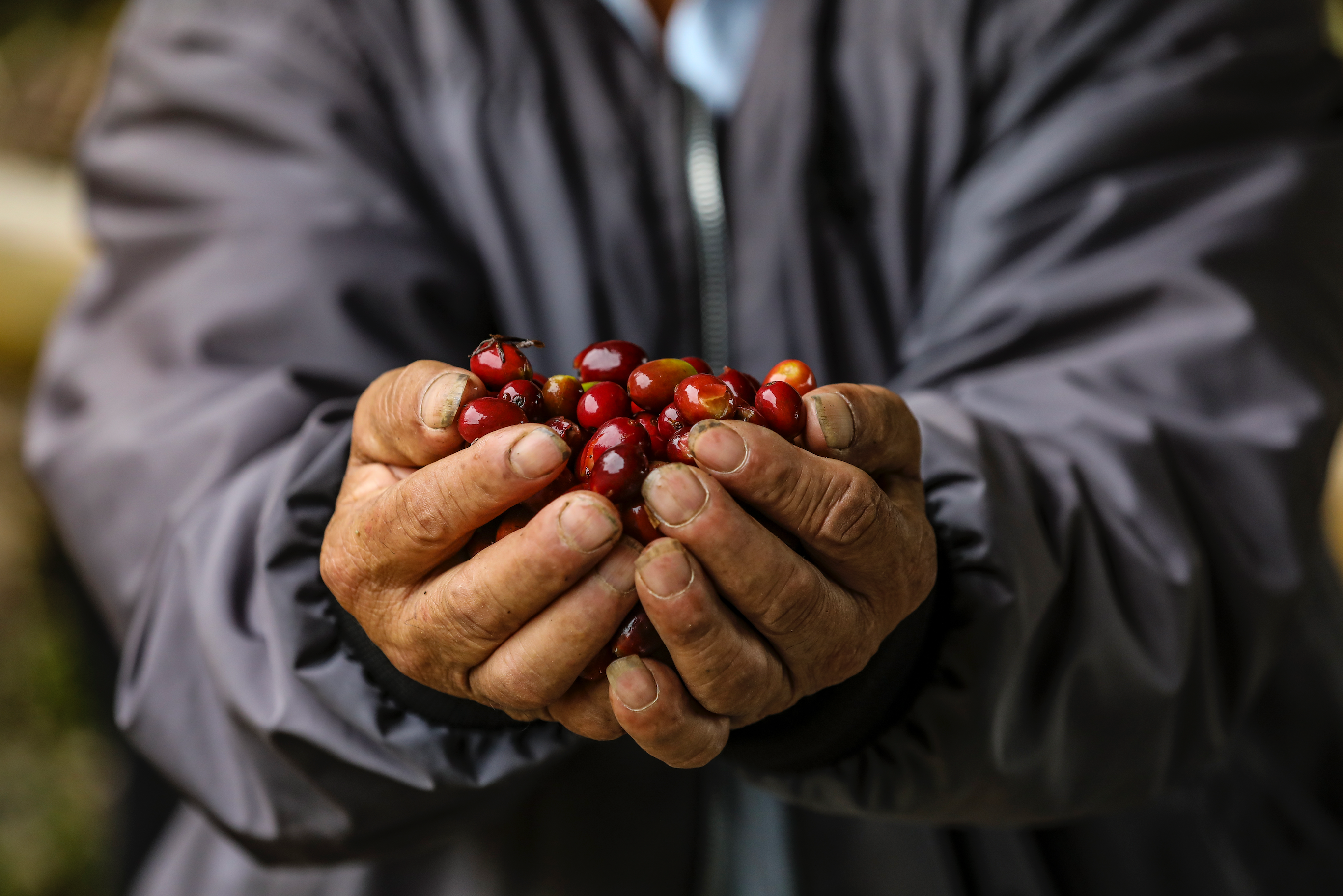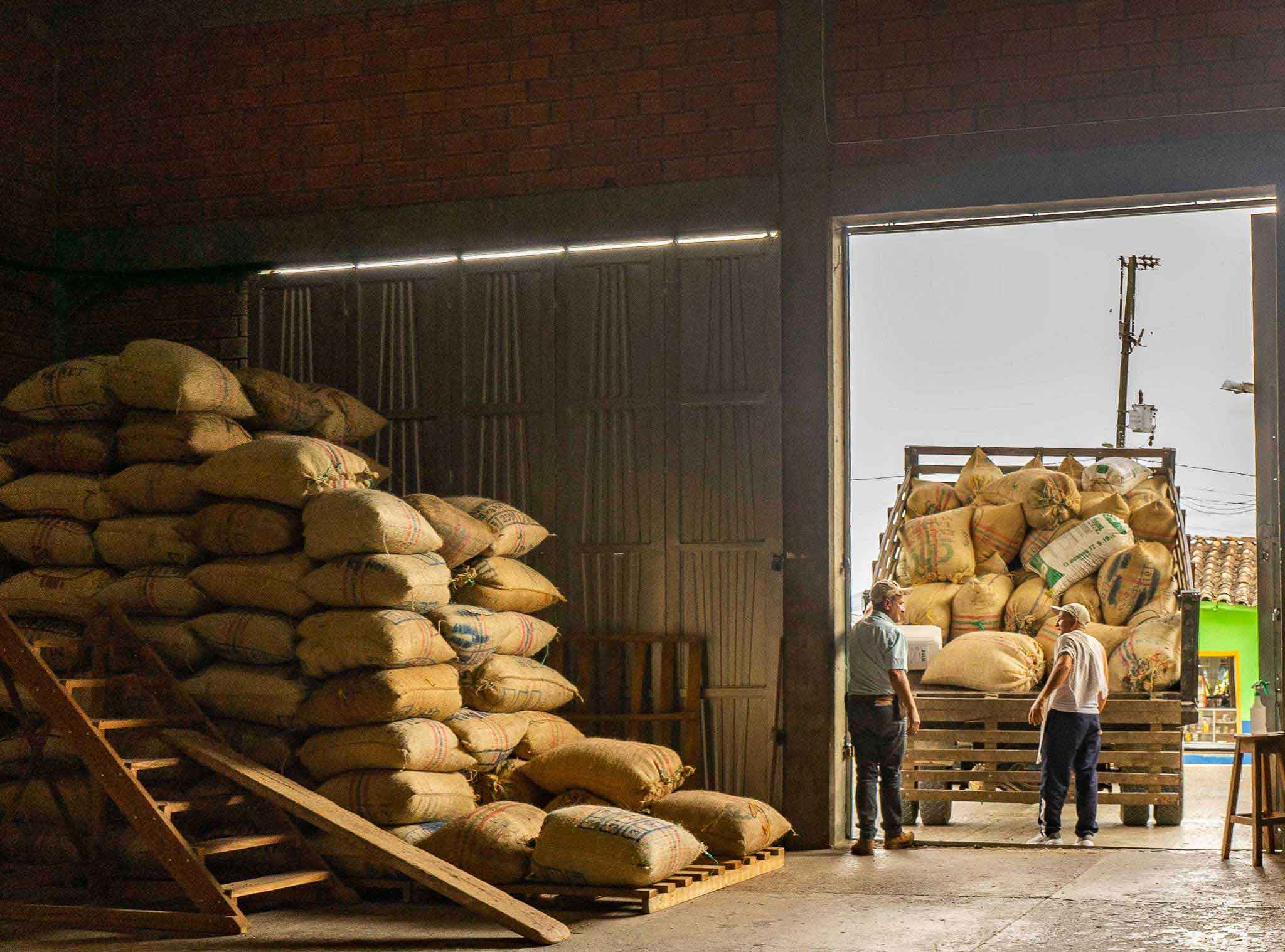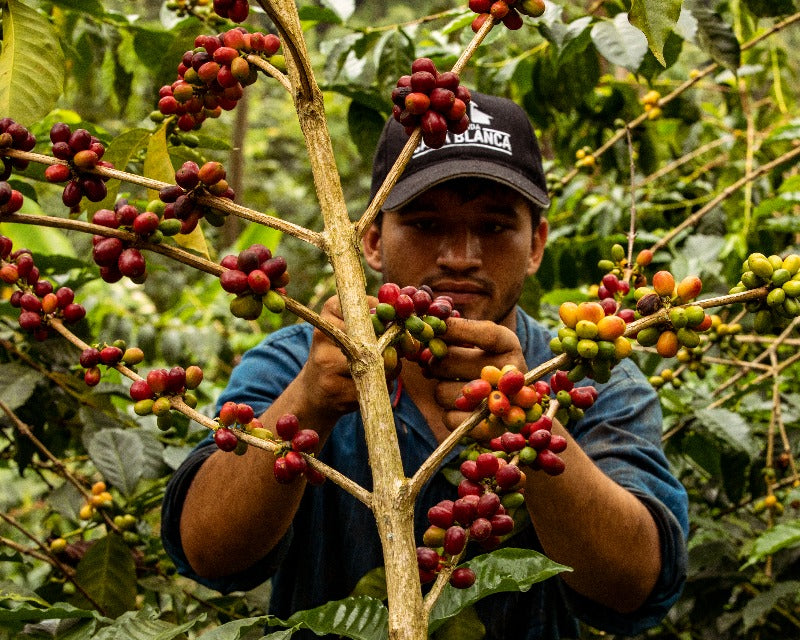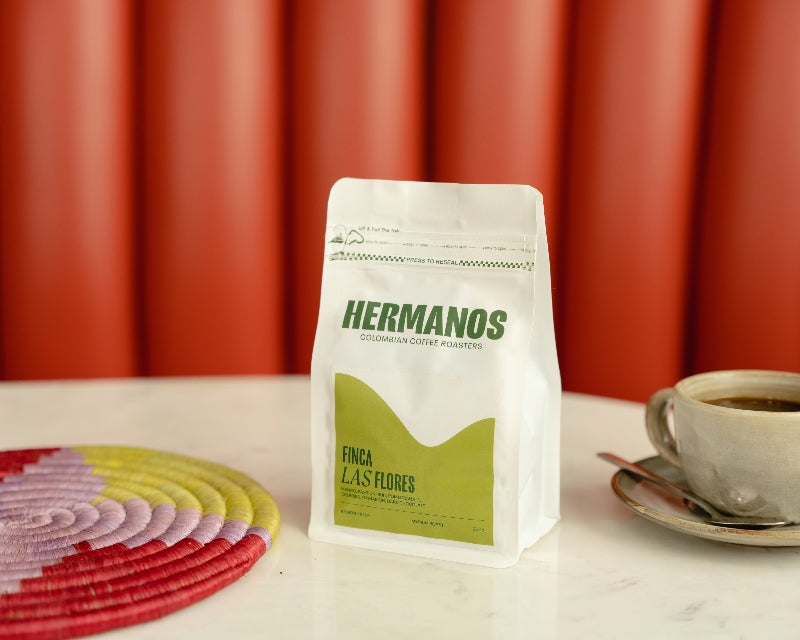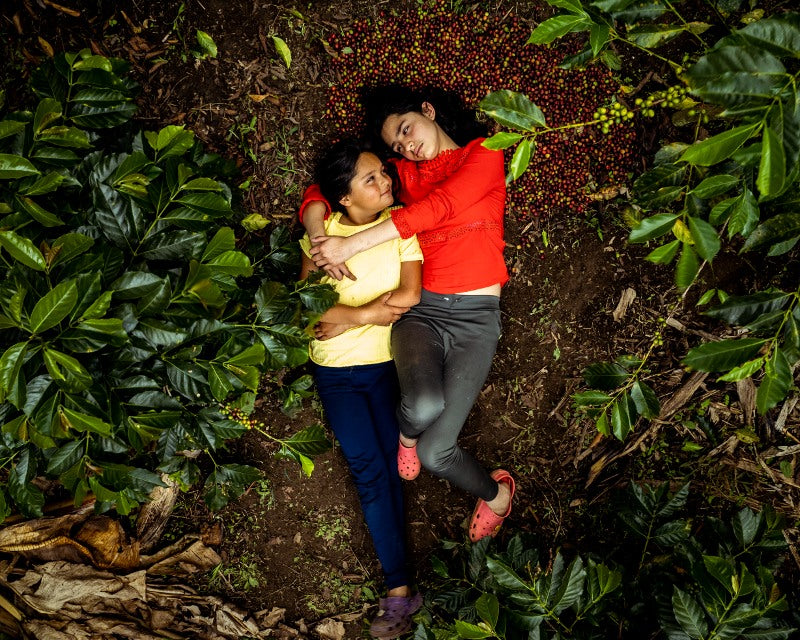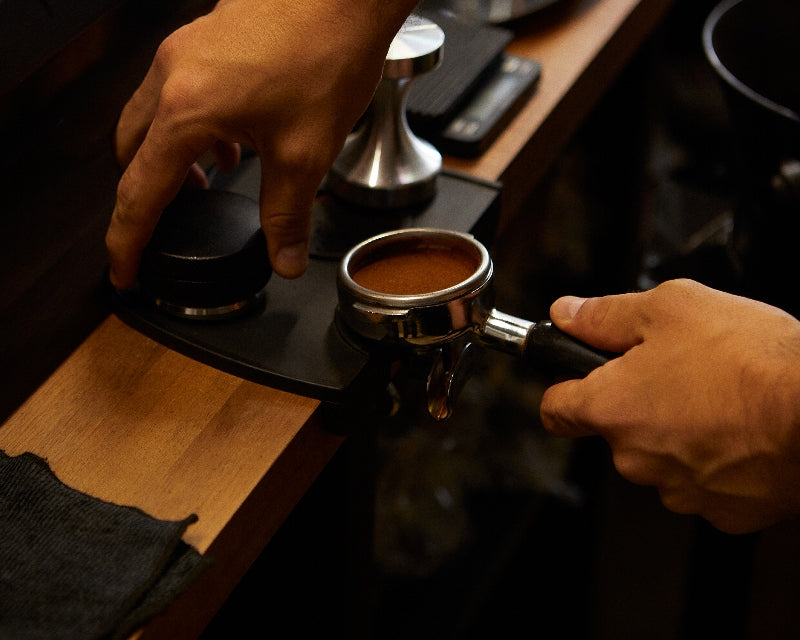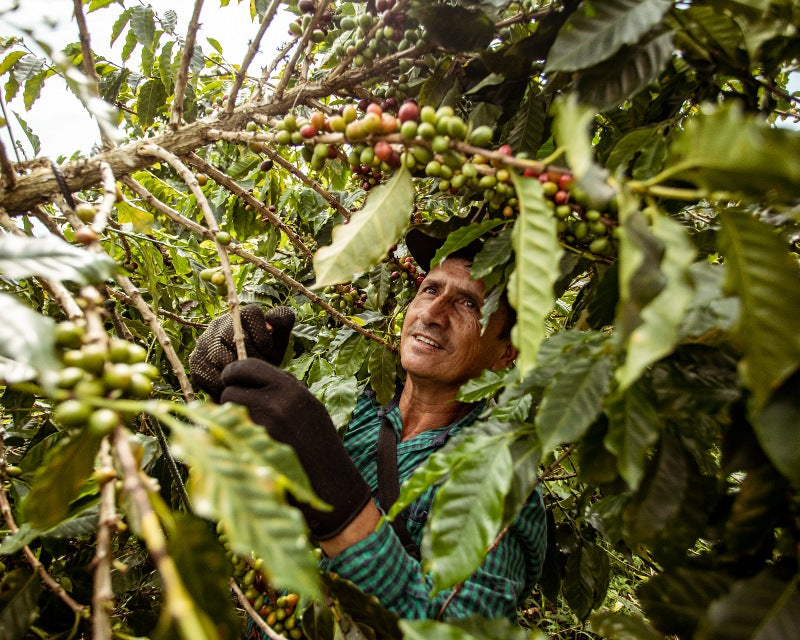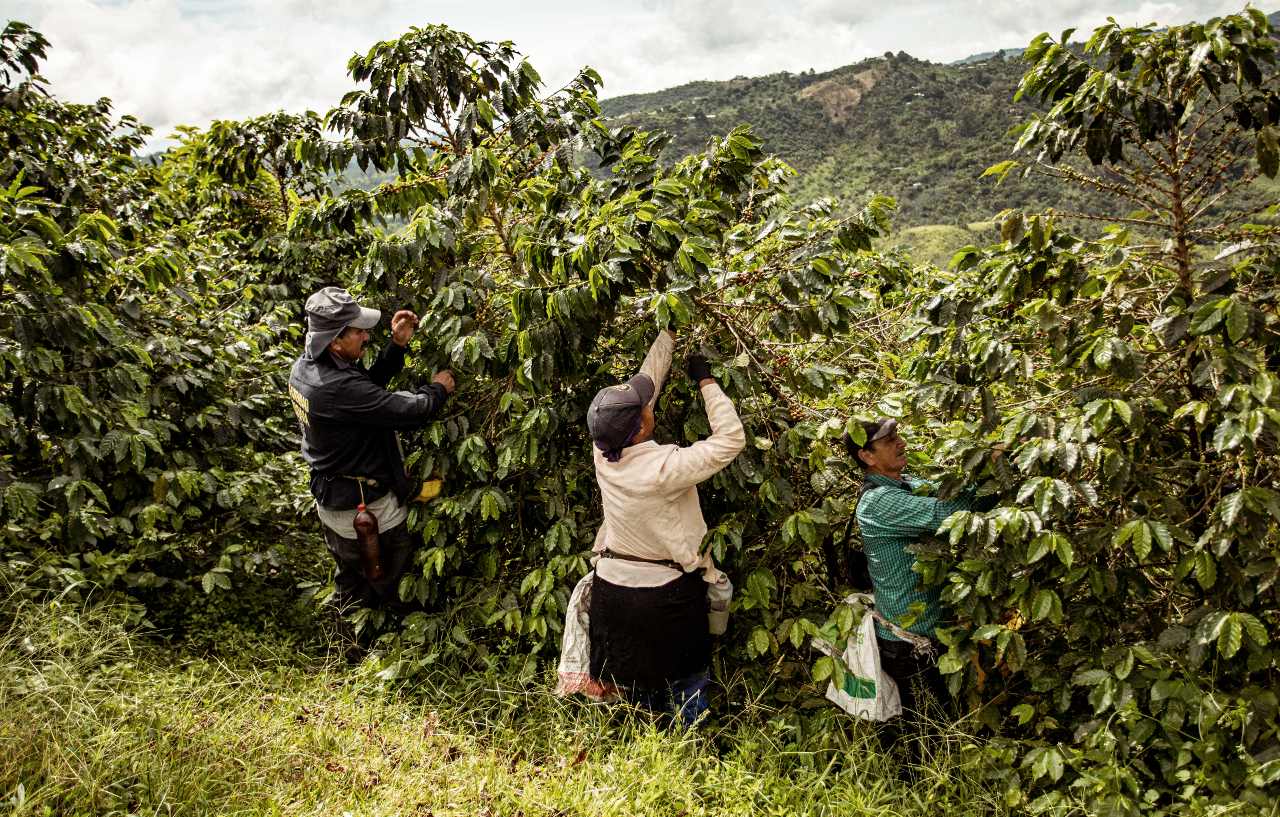Contents
-
Finca El Vergel And The Forest Green Team
-
The Importance Of Producer-Roaster Relationships
-
How It Feels For Producers To See Their Coffee Enjoyed Around The World
-
Climate Challenges Faced By Coffee Producers
-
Why Producers Choose Specialty Coffee Over Commodity
-
The Diversity Of Colombian Coffee - A Welcome Reminder
-
Future Plans And Goals For El Vergel
-
Single Origin Specialty Coffee From El Vergel
Recently we had the pleasure of hosting the brothers behind our popular El Vergel coffee — grown on one of the oldest coffee farms in Tolima.
As well as showing them around a few of the Hermanos shops, where they got to see their coffee enjoyed by our customers first-hand, we took the chance to ask them a few questions about what motivates them as second-generation producers and the kind of challenges they face today.
Below are some of the most important things we learnt from our time together.
Watch the Full Interview with Elias and Shady Bayter
Finca El Vergel and the Forest Green Team

Finca El Vergel is one of the oldest single estates in the Tolima region of Colombia, run today by second generation producers Elias and Shady Bayter with the help of their mother Martha. Unlike many smallholder farms in the country, known for their modest-sized plots of around 5 hectares, this estate boasts over 300 hectares of land (of which coffee is planted on almost 100 hectares).
However, much in keeping with the Colombian way of doing things, this space is divided into small plots where unique altitudes and microclimates inform the way coffee is treated, so that the results of each batch can be more tightly controlled (a trademark characteristic of specialty coffee).

Walking through the El Vergel estate, which we took the opportunity to do on our recent visit, you’ll find several varieties being grown, or “a little bit of everything” as Elias explained. This includes Caturra, Pacamara, Java, Geisha, and of course, Bourbon (the excellent coffee we chose to stock in our Hermanos shops).
You’ll also find a combination of both traditional production methods (passed down from their parents) and an impressive amount of modern experimentation through the way coffee plants are treated in the fields as well as the technologies used during processing.
The Importance of Producer-Roaster Relationships

To quote Shady Bayter, the eldest of the two brothers, “direct trade makes many things easier. And with direct trading, where roasters buy coffee directly from the producer, we are able to keep investing and developing coffee produced on the farm. We’re able to improve the soil, the crops, the tools, and quality.”
The obvious benefit for roasters like us is the ability to source amazing coffee at a better price and then pass these savings on to our customers, however, we also appreciate the human element of the direct trade model and knowing exactly who we’re buying our coffee from. Hearing that producers like the Forest Green team also value these relationships, both on a practical and personal level, is deeply validating for us.
In theory, direct trade allows producers to learn more about what’s happening with their coffee once it’s bought and exported to other countries. And the feedback received, in addition to satisfying a certain curiosity about what roasters and customers think, also helps them to adjust their processes to ensure their coffee keeps meeting consumer tastes (securing future revenue).

As the brothers reminded us, it wasn’t always the case that producers could actually taste the coffee they’d grown after it had been harvested, processed, shipped, roasted and then brewed in another country, which is pretty mind blowing if you really think about it.
Even today, a producer will rarely get to try their coffee in the same way you do when you walk into a shop and buy a flat white or latte.
However, with more direct communication between both parties, it becomes much easier for producers to understand the results of their efforts, allowing them to better gauge things like how coffee notes develop after being transported and roasted.
With more direct communication between both parties, it becomes much easier for producers to understand the results of their efforts, allowing them to better gauge things like how coffee notes develop.
Importantly, it provides them with information on how consumers in places like the UK truly feel about the coffee they’ve grown — once it’s travelled thousands of miles from its origin and been subjected to a variety of processes that affect the way coffee tastes.
As the entire industry faces challenges from climate change to supply chain difficulties, the mutual willingness to strengthen relationships between producers and roasters gives us hope for the future as we strive towards more sustainable and ethical coffee.
How It Feels for Producers to See Their Coffee Enjoyed Around the World

We’ve always wondered how the experience of visiting a farm where the coffee we sell is produced (aka an “origin trip” and one of the things we love the most about what we do), compares to the experience of a producer seeing their coffee sold in coffee shops in far off destinations.
“There’s nothing that makes us more happy than seeing our coffee, from El Vergel, in a shop in the UK. It’s of another world”, said Elias when asked about this. “Being able to be here and have our own coffee and see the reaction of people having our coffee is unbelievable – this is like a dream come true.”
Hermanos and many other coffee roasters today emphasise coffee transparency and the important role it plays in giving people a way to track where their money is going. And while we benefit from this financially in that we’re able to place a higher value on coffee that can be directly traced to specific farms, we also do this because we care about what it means for producing communities. When we hear producers are striving for the exact same thing, we’re reassured that our values are in the right place.
“We always dreamed of creating the connection where people can drink coffee that comes directly from one farm, knowing who has grown the coffee. It’s exceptional.” Says Shady.
What Is Coffee Traceability and Why Does It Matter?
Climate Challenges Faced By Coffee Producers

Reiterating what many producers have told us in recent years, the Bayter brothers spoke to us over the course of their London trip about how climate change is making coffee growing more difficult.
“Too much rain or too much heat has changed the production environment that we used to have,” says Shady. “It’s a real problem that we’ve been facing for about three years now and to every producer that you talk with it’s clear that something is going on.”
“There are too many regions where people used to produce coffee but nowadays you can’t – it’s really hot and just impossible to grow coffee.”
Learn How Climate Change Is Impacting the Cost of Coffee
Why Producers Choose Specialty Coffee Over Commodity

When the Forest Green team grew coffee in commercial volumes, sometimes referred to as commodity coffee, they relied on over 10,000 trees per hectare (mostly planted in sun-exposed areas) to generate the same kind of profit that it now takes only 2,500 trees per hectare of specialty coffee to achieve.
Making small changes such as only growing coffee in shade and applying a greater level of care and attention to the fields throughout the year places a much greater demand on resources and time, according to the brothers. However, as the Forest Green team and many other coffee producers throughout Colombia have proven, this is a worthwhile pursuit if you can charge more for the higher-quality yields you’re able to grow.
Smaller volumes of high quality specialty coffee typically command a much higher price than commodity coffee in large quantities.
It’s also clear that focusing more on specialty coffee has allowed the brothers to lean into their passion for experimentation — learning more about the complex way coffee responds to different processes.
With a greater appetite for unique and interesting coffee profiles in specialty coffee markets like the US and UK, there’s much more room for producers like the Bayters to push the boundaries of their craft, rather than concern themselves with merely attaining high volume yields with little regard to quality or uniqueness.
The Diversity of Colombian Coffee – A Welcome Reminder

While Colombia’s reputation as one of the best coffee producers in the world has helped many producers secure a place in international coffee markets, it has also contributed to a sense that all coffee produced here is somehow similar.
If nothing else, our recent coffee tasting session with the Bayter brothers, featuring over a dozen coffees grown on different plots of land within the same estate, is a reminder that the potential for diversity in Colombia (when diversity is allowed to thrive) is incredible.

Slight geographic differences and the resultant altitude and climate variations, combined with carefully controlled processing methods, can lead to an incredible amount of variety. Some of the coffees we tried during our tasting at the Hermanos roastery were sweet and overwhelmingly aromatic, while others had strong bodies and distinct chocolate-y notes. Yet, all came from the exact same estate, Finca El Vergel.
What Makes Colombian Coffee Beans So Special?
Future Plans and Goals for El Vergel

Admittedly, the goal of many coffee producers around the world is simply to earn enough money from their farms to support their families. And even this isn’t always possible when farmers aren’t able to command a good price for their annual yields, whether this is due to the way the commodity coffee market works or unpredictable weather conditions impacting production.
The Bayter brothers, who have seen a good level of success in recent years in the specialty coffee market, are fortunate enough to be thinking of plans beyond merely sustaining operations and earning a living.
The Forest Green team now plans to grow specialty coffee across the entire estate. “This is a really big farm and the idea is to keep growing it. The goal is to have the whole farm producing coffee with different varieties and different processing methods.” Elias told us.
When your average Colombian farm is a fraction of the total size of the El Vergel estate and given that the team is now only focused on specialty coffee, which requires far more care and resources than commodity-grade coffee, this seems like a formidable task, but one we’re excited to watch them achieve over the coming years as we continue to work with the brothers.
Single Origin Specialty Coffee from El Vergel
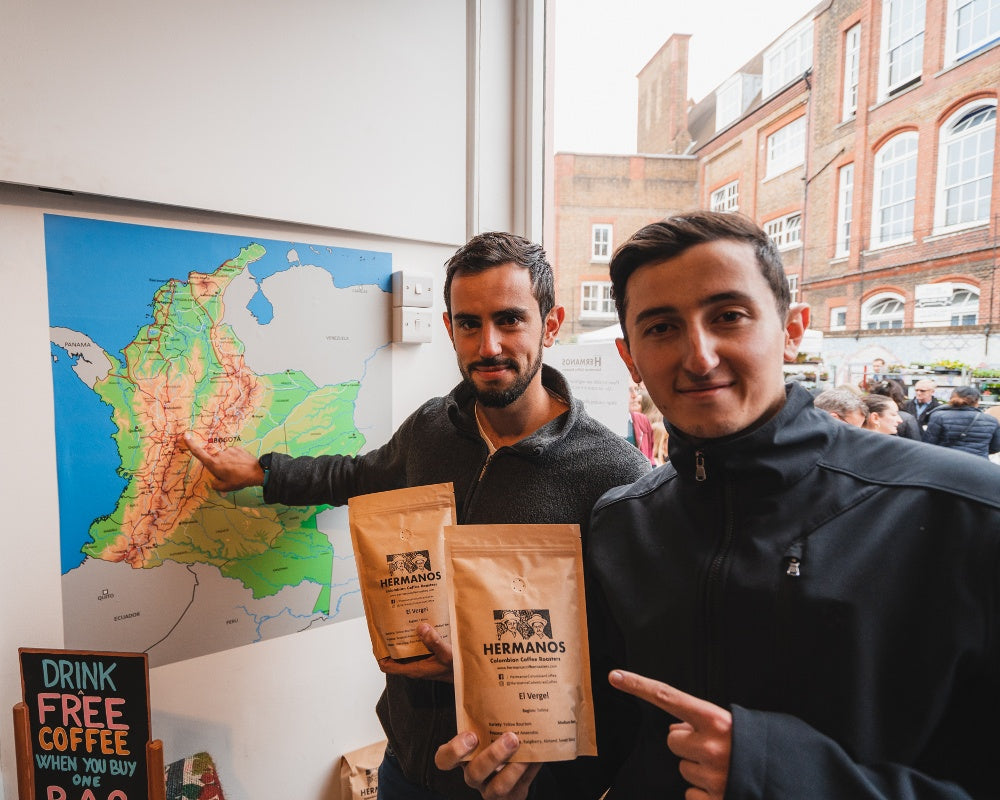
Like many of the single origins we choose to sell in our shops and online, we think El Vergel is an incredible coffee worth paying for, but don’t take our word for it. You can pick up a bag in our shops or online and see what we mean.
You can also find out more about the kind of work the brothers are doing on their farm and with local Colombian coffee producers by visiting their socials, or watch our full interview with them by clicking the link below.
Watch the Full Interview with Elias and Shady Bayter – Producers of El Vergel











